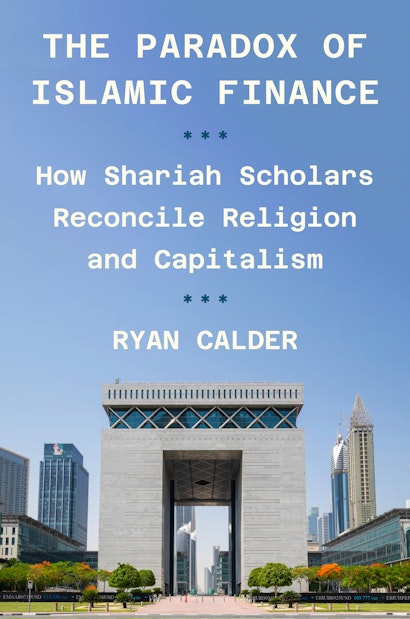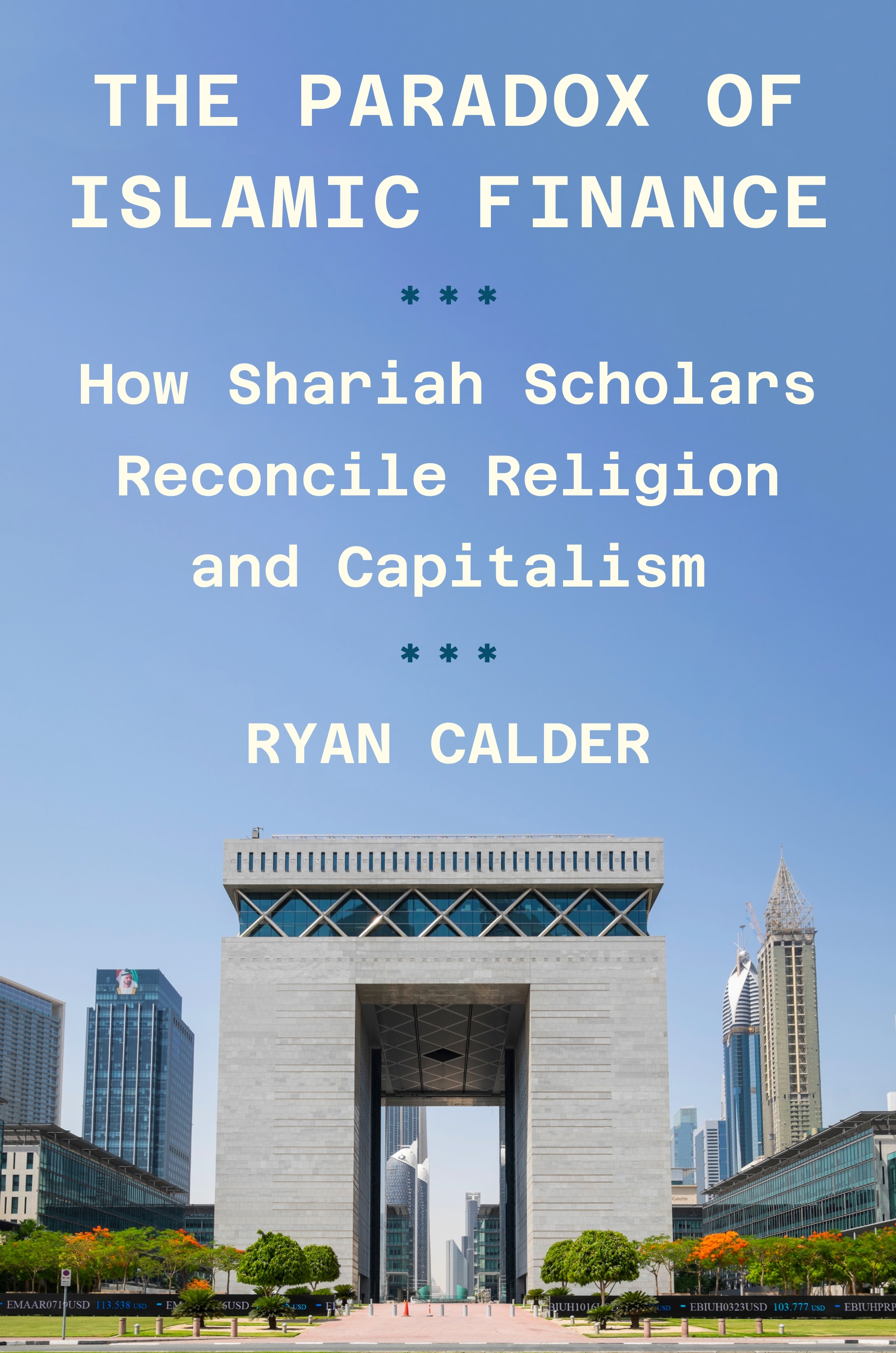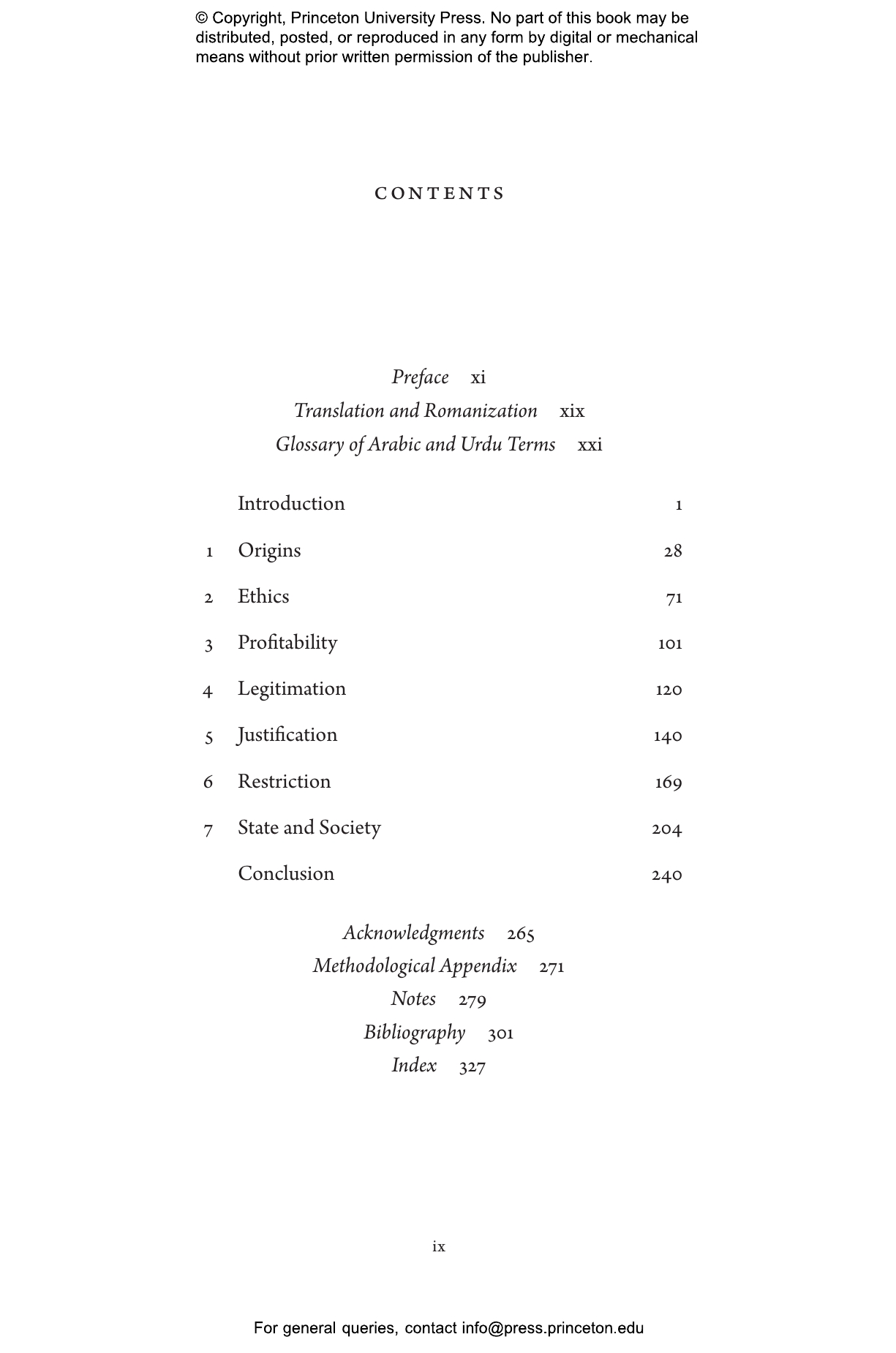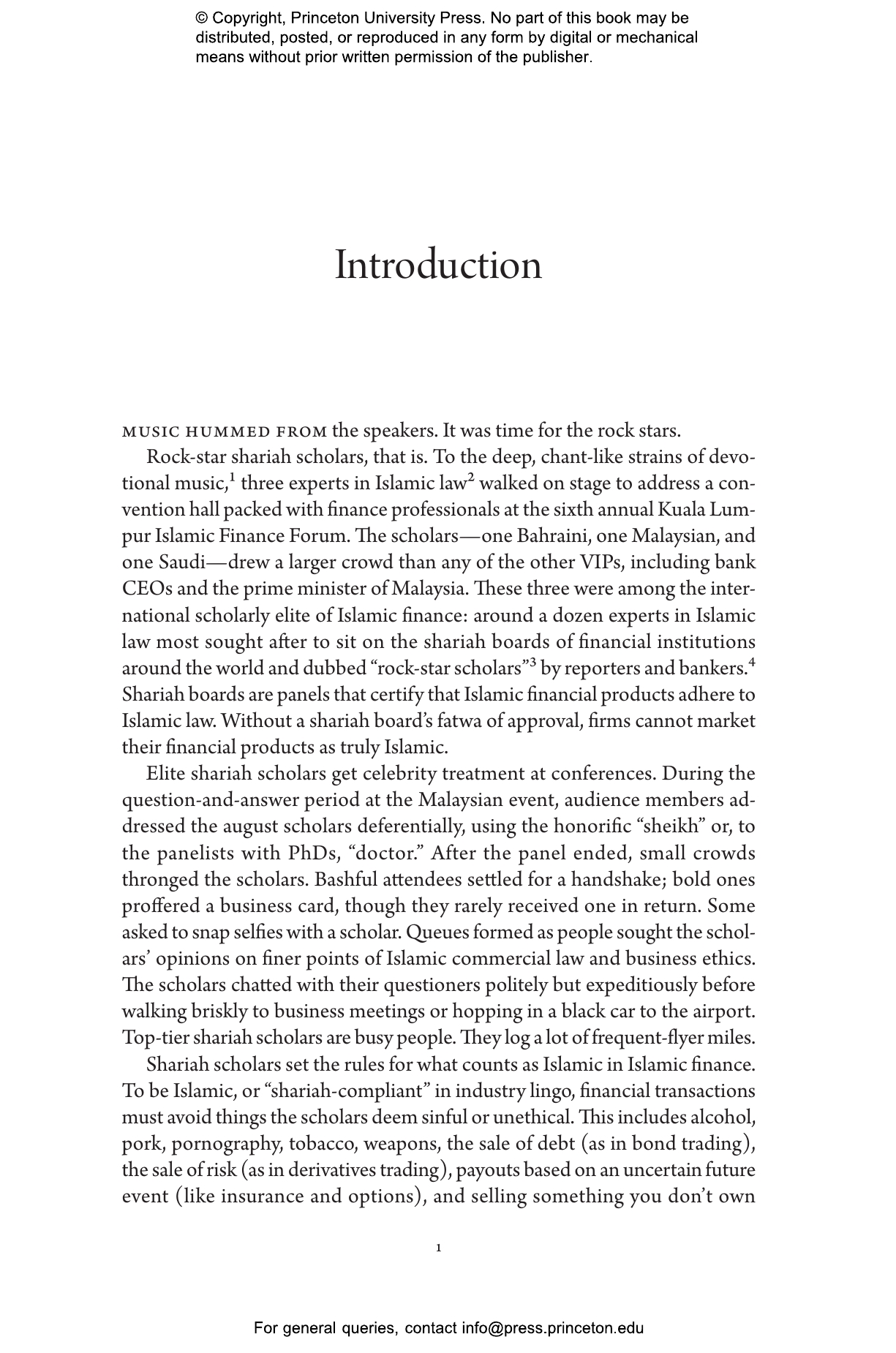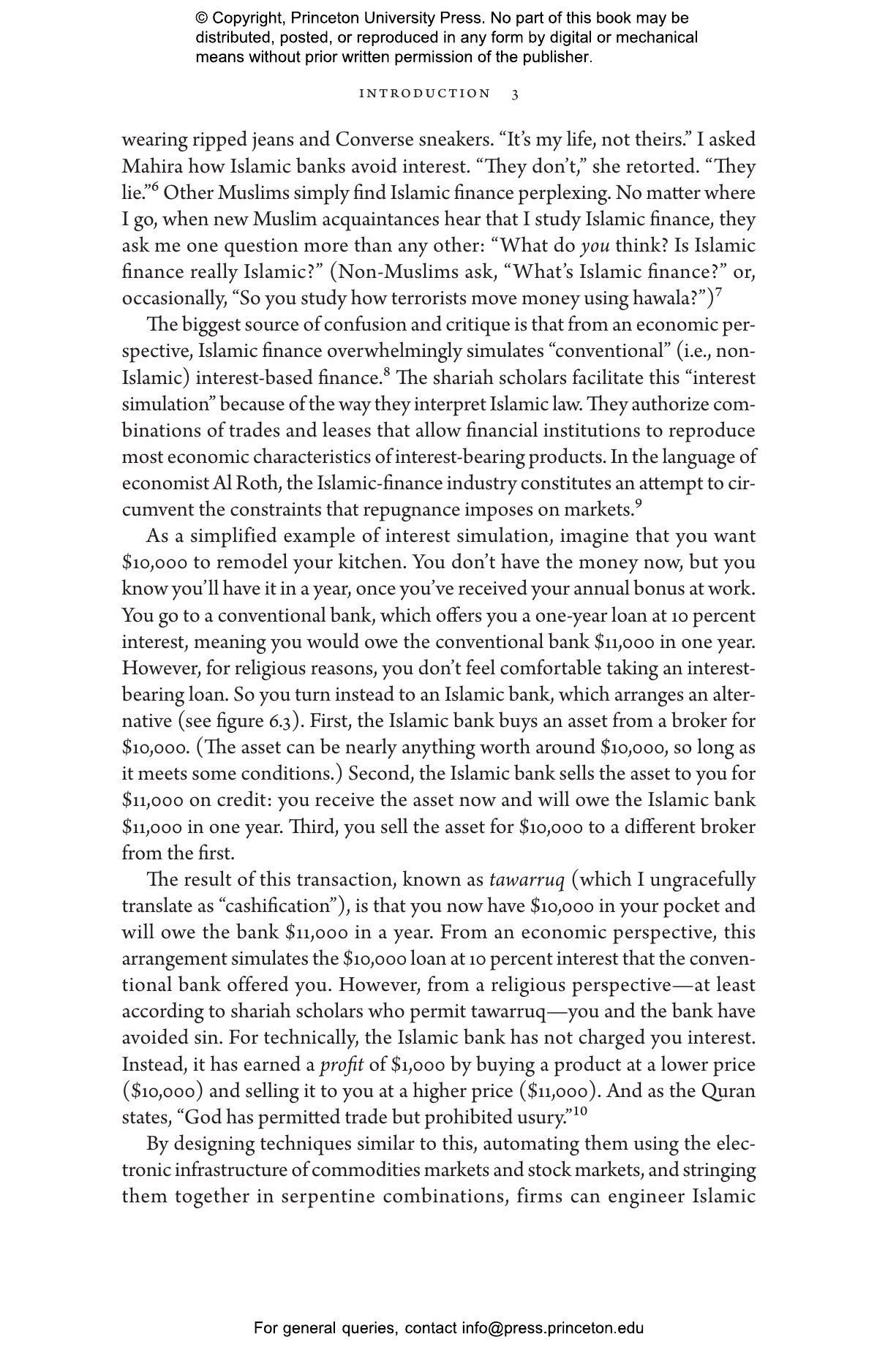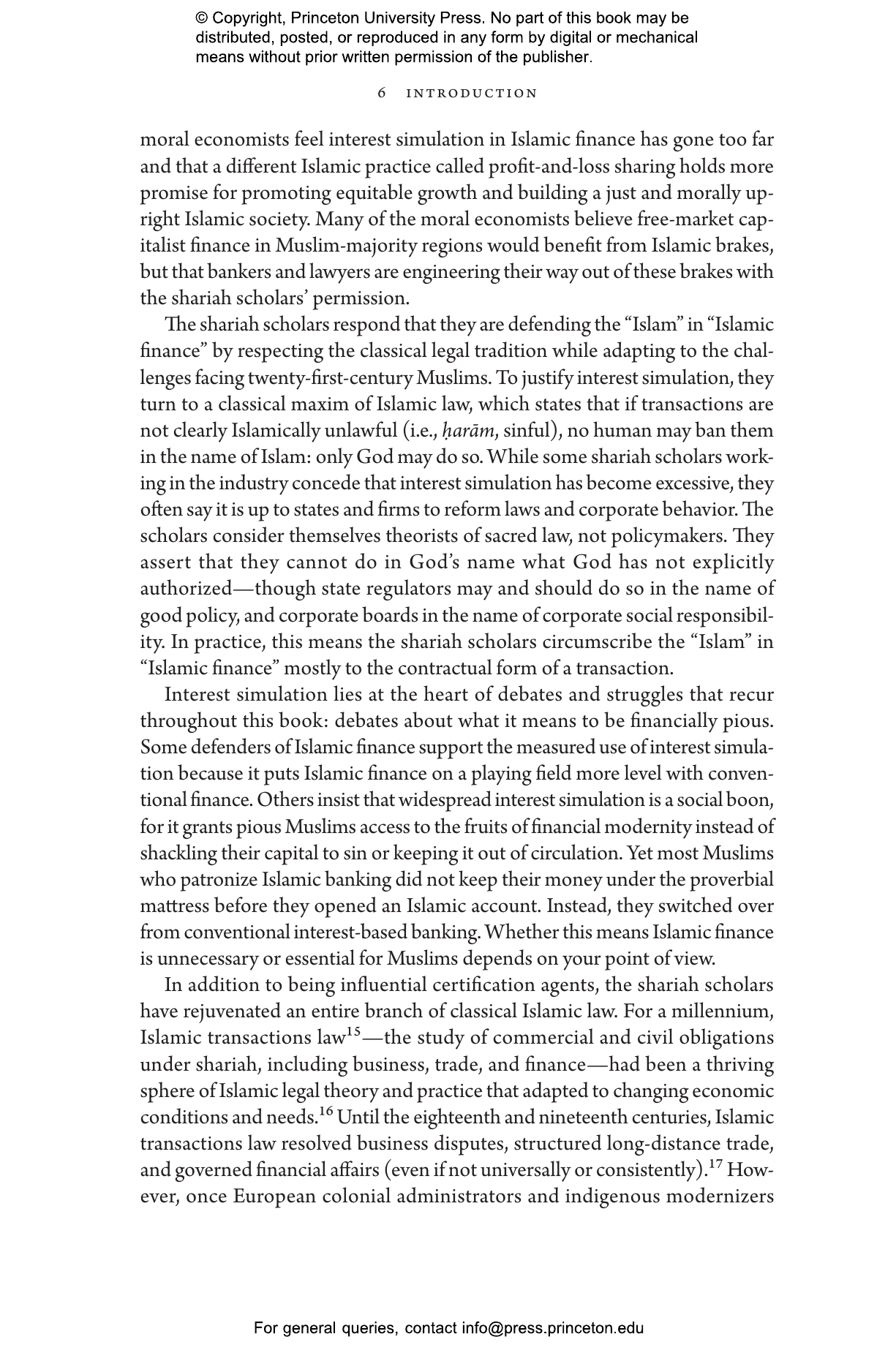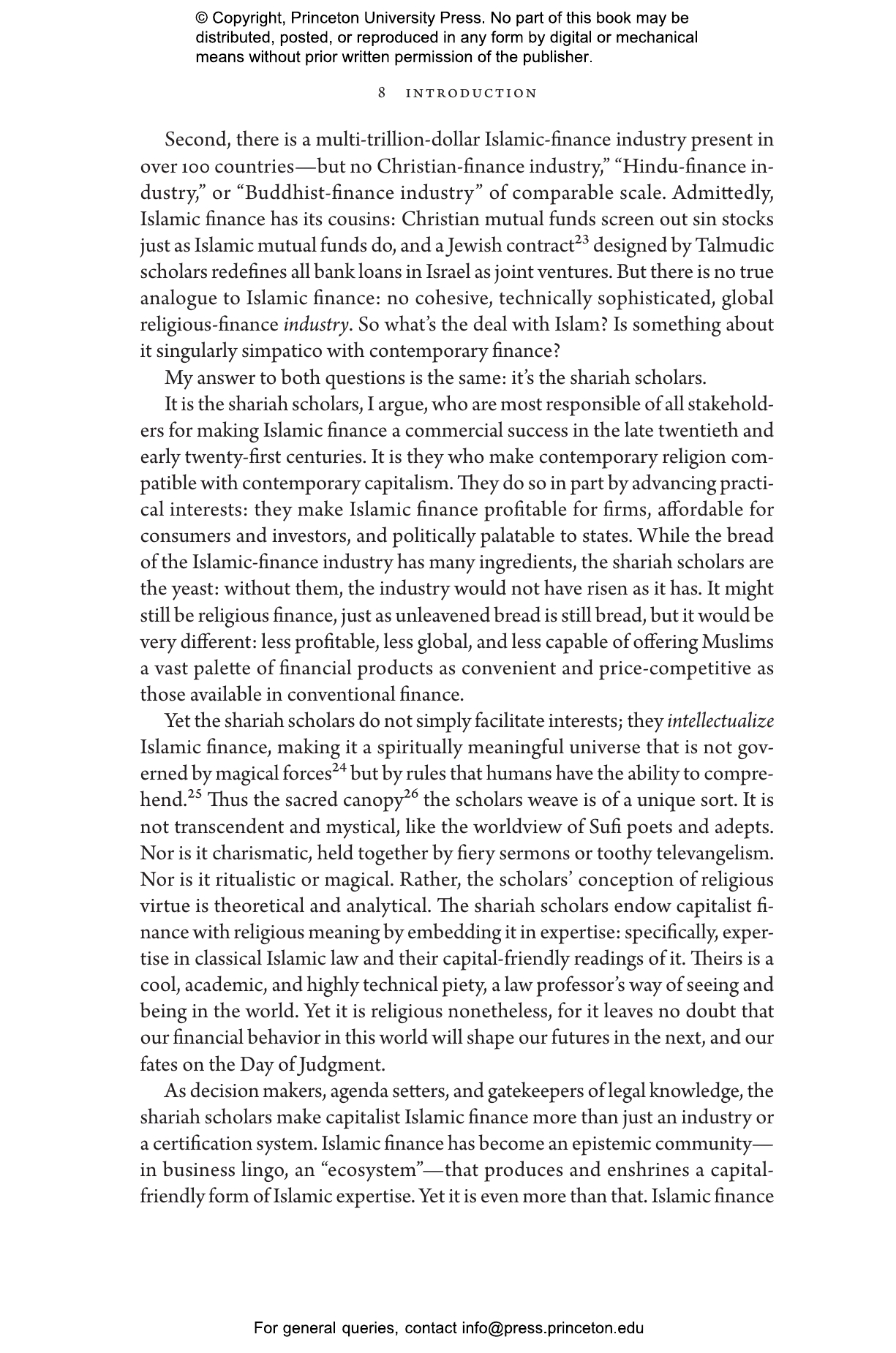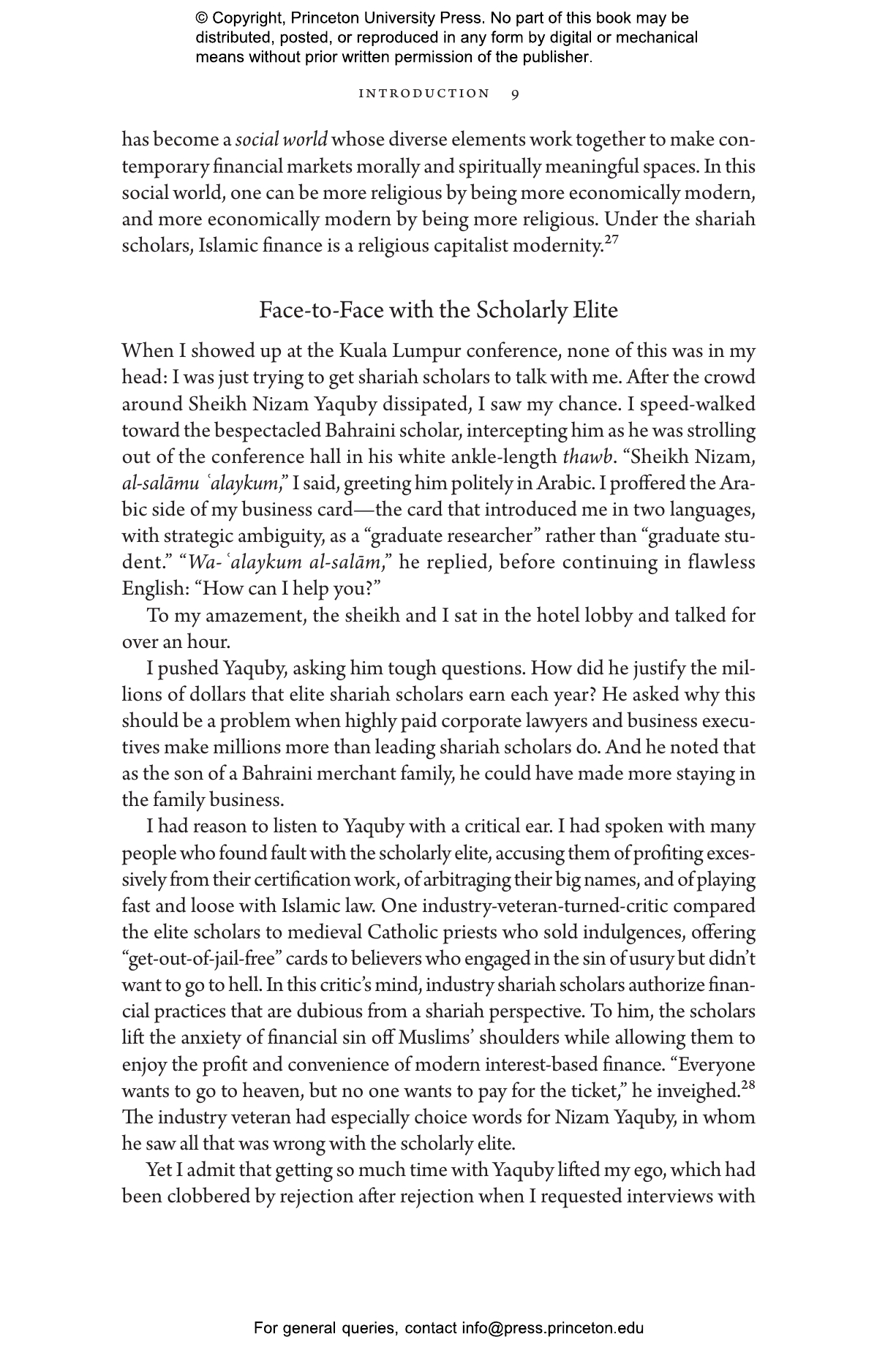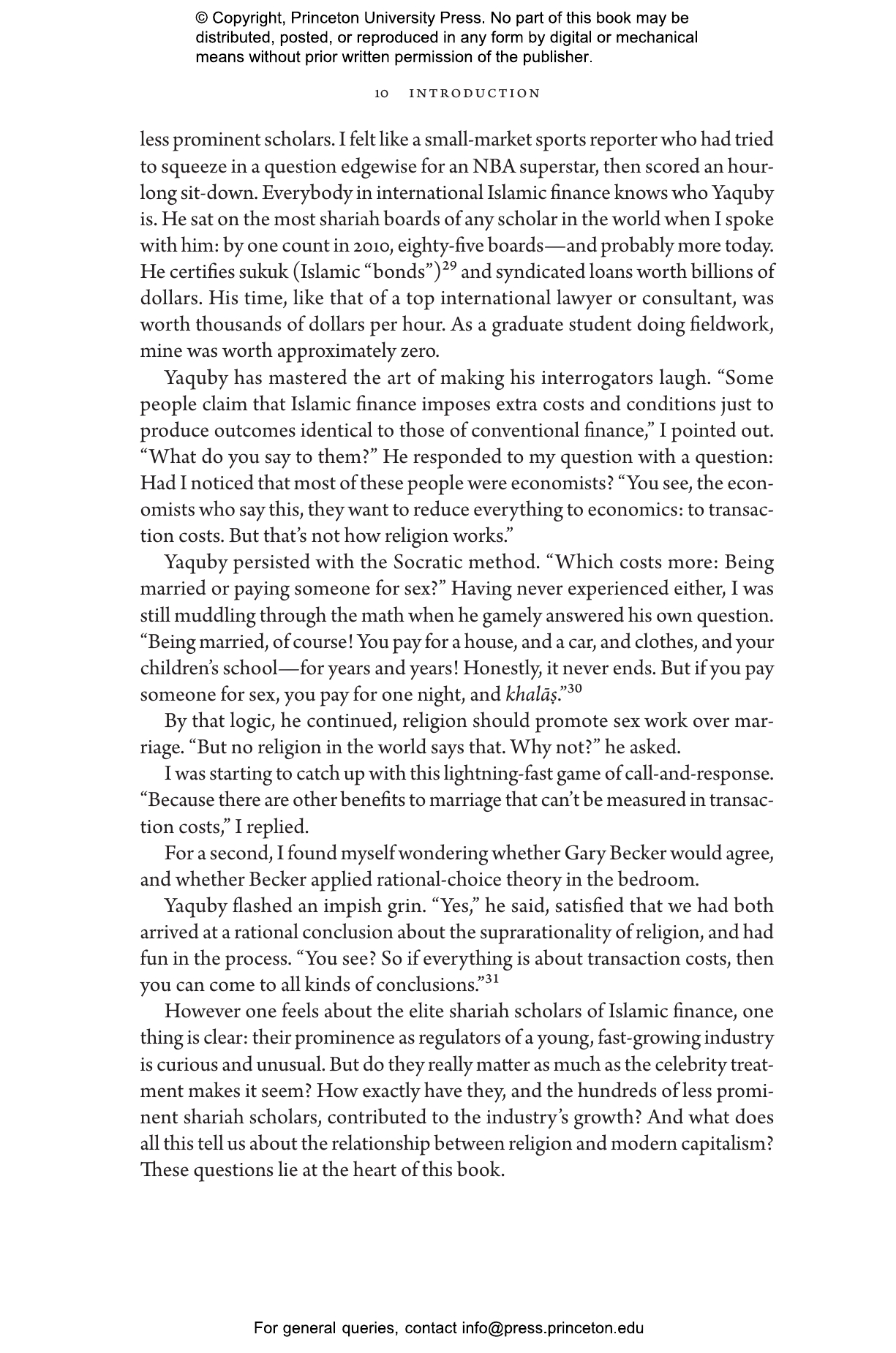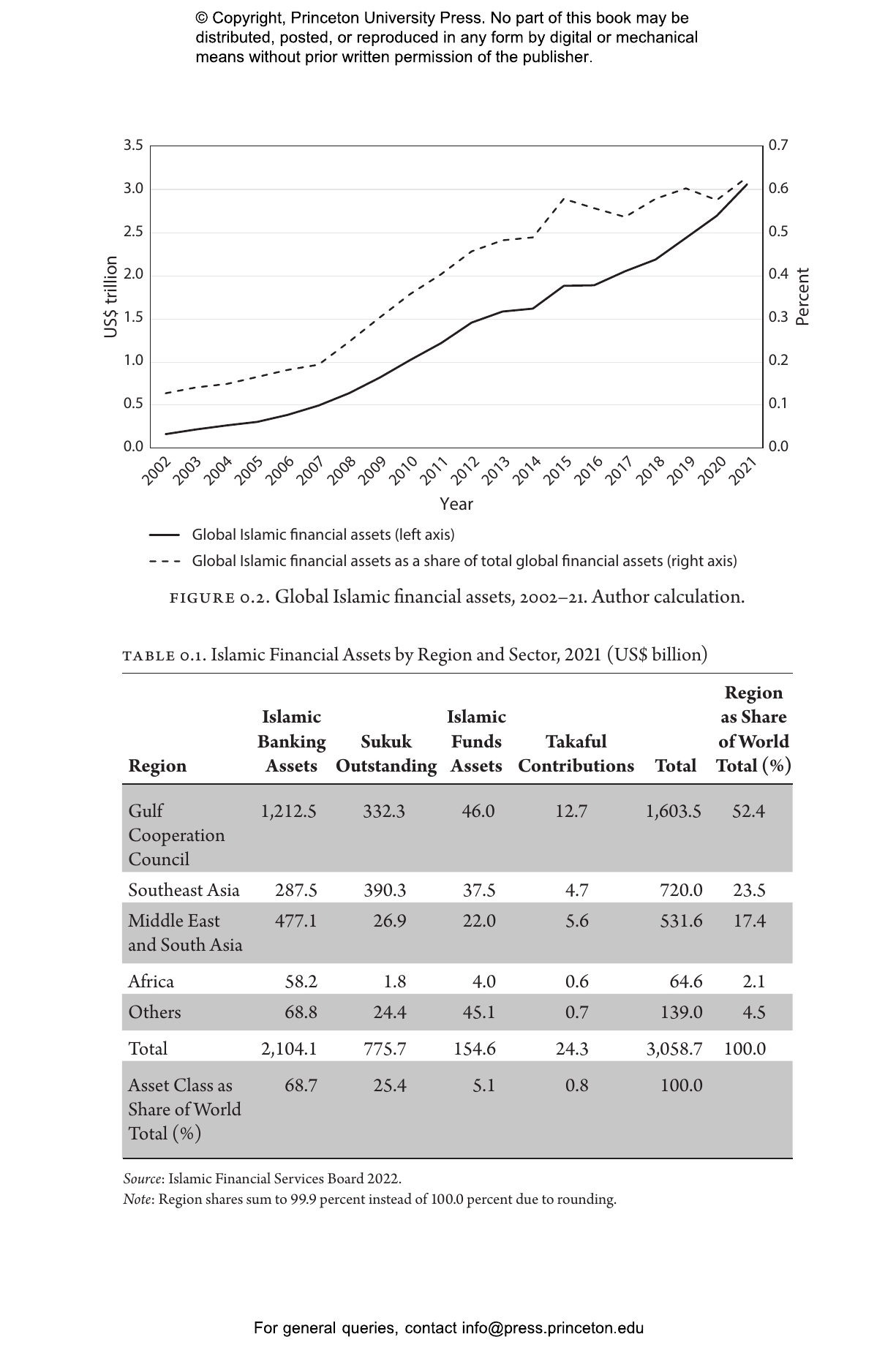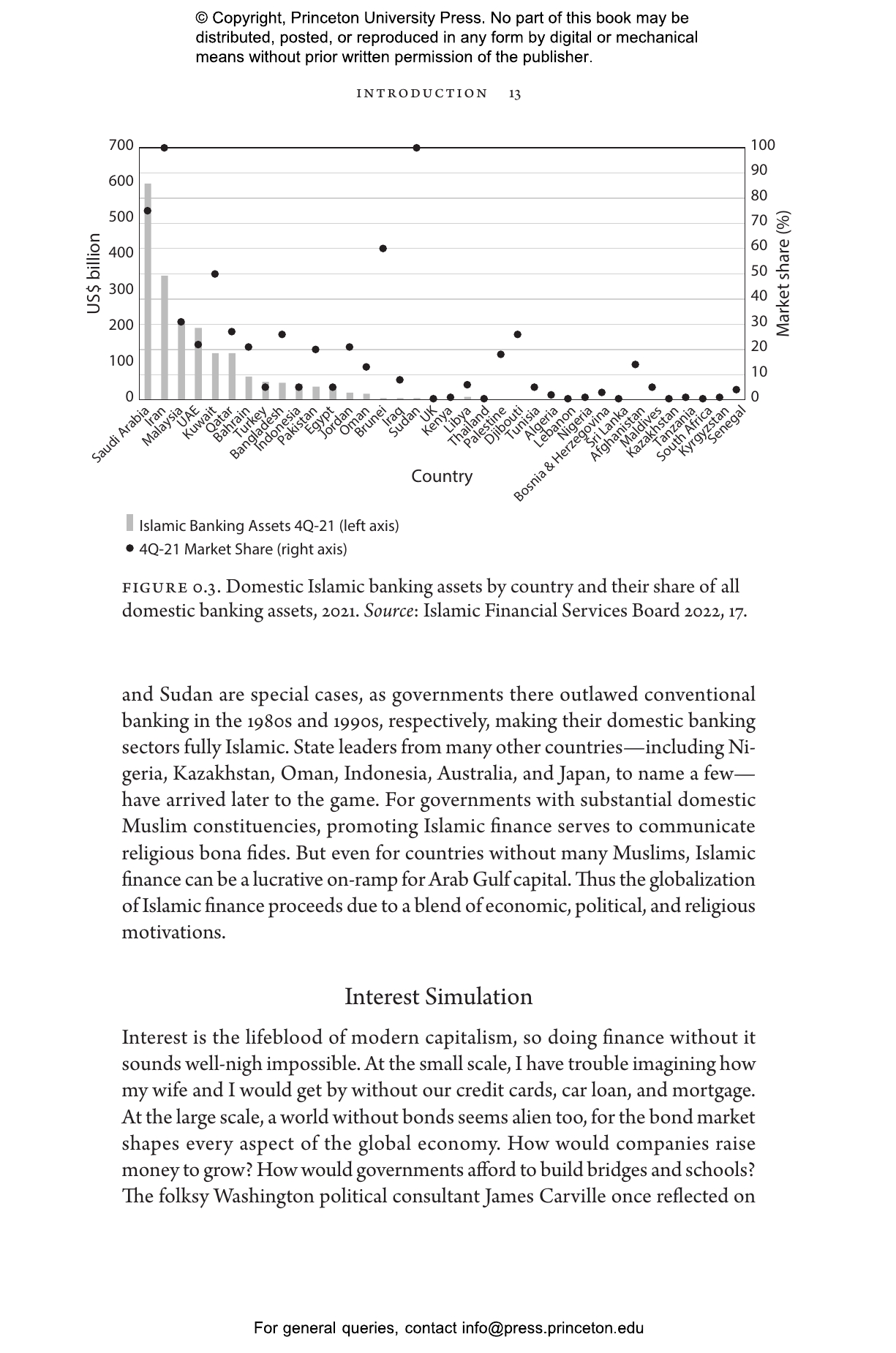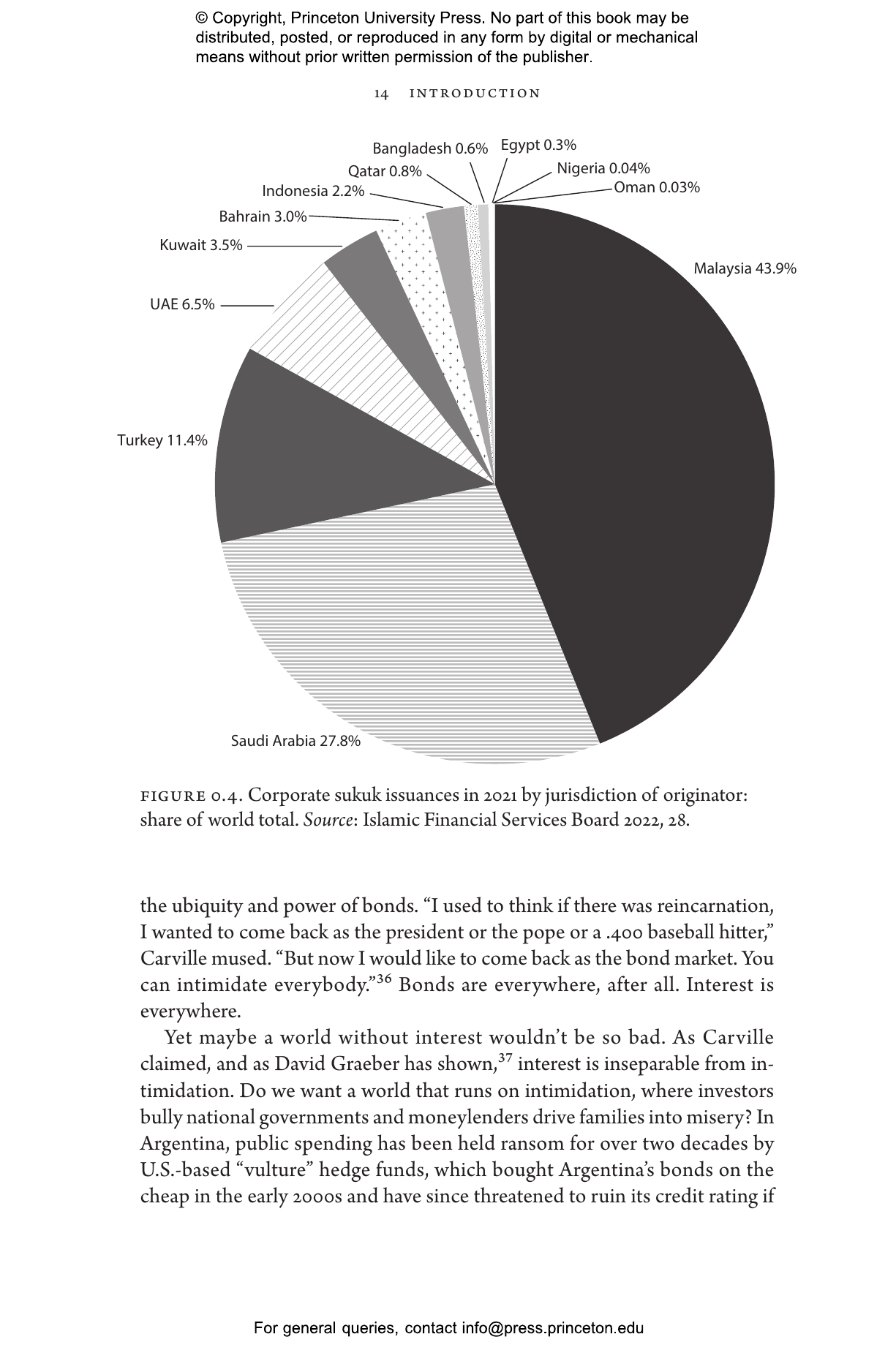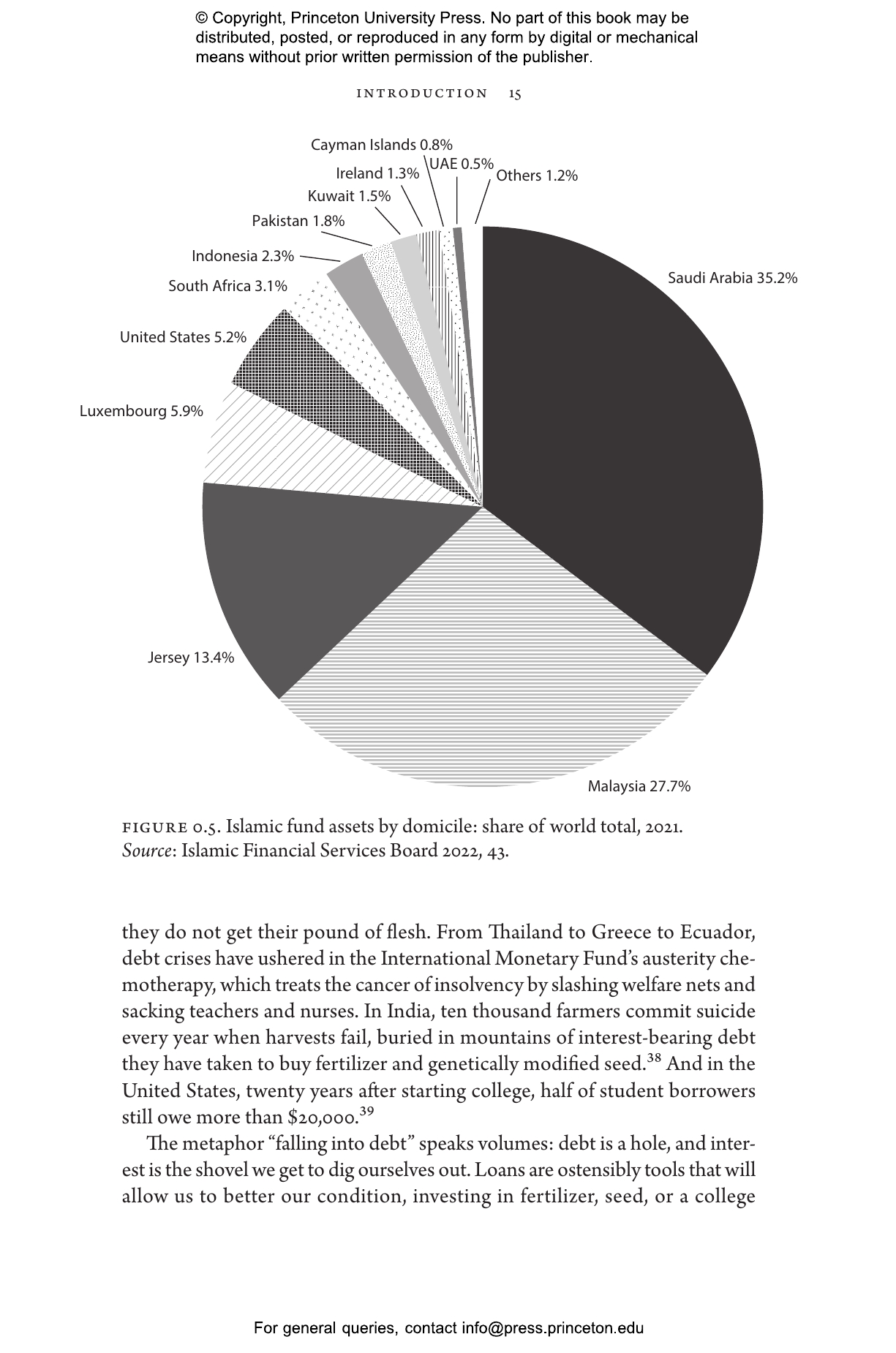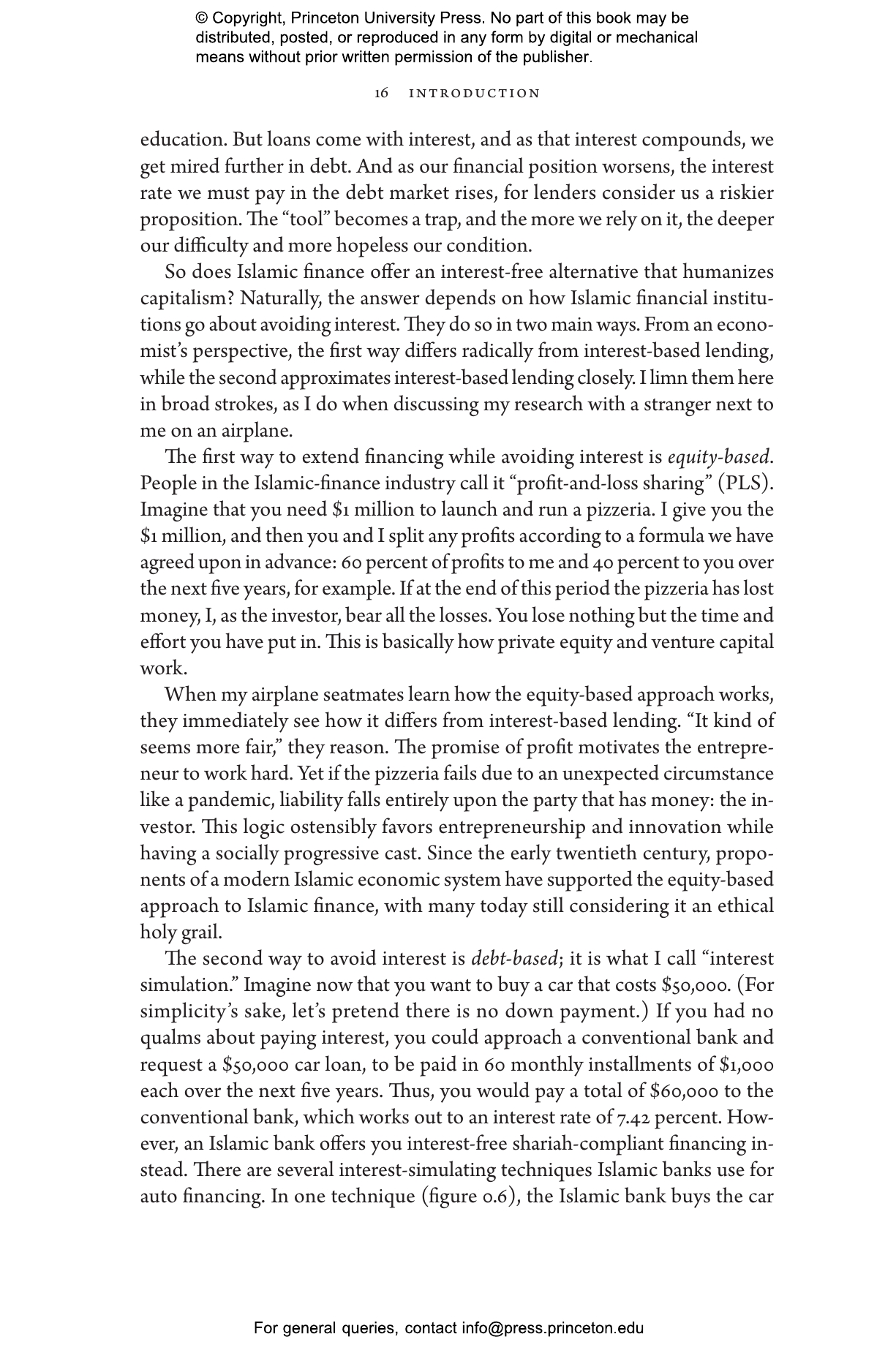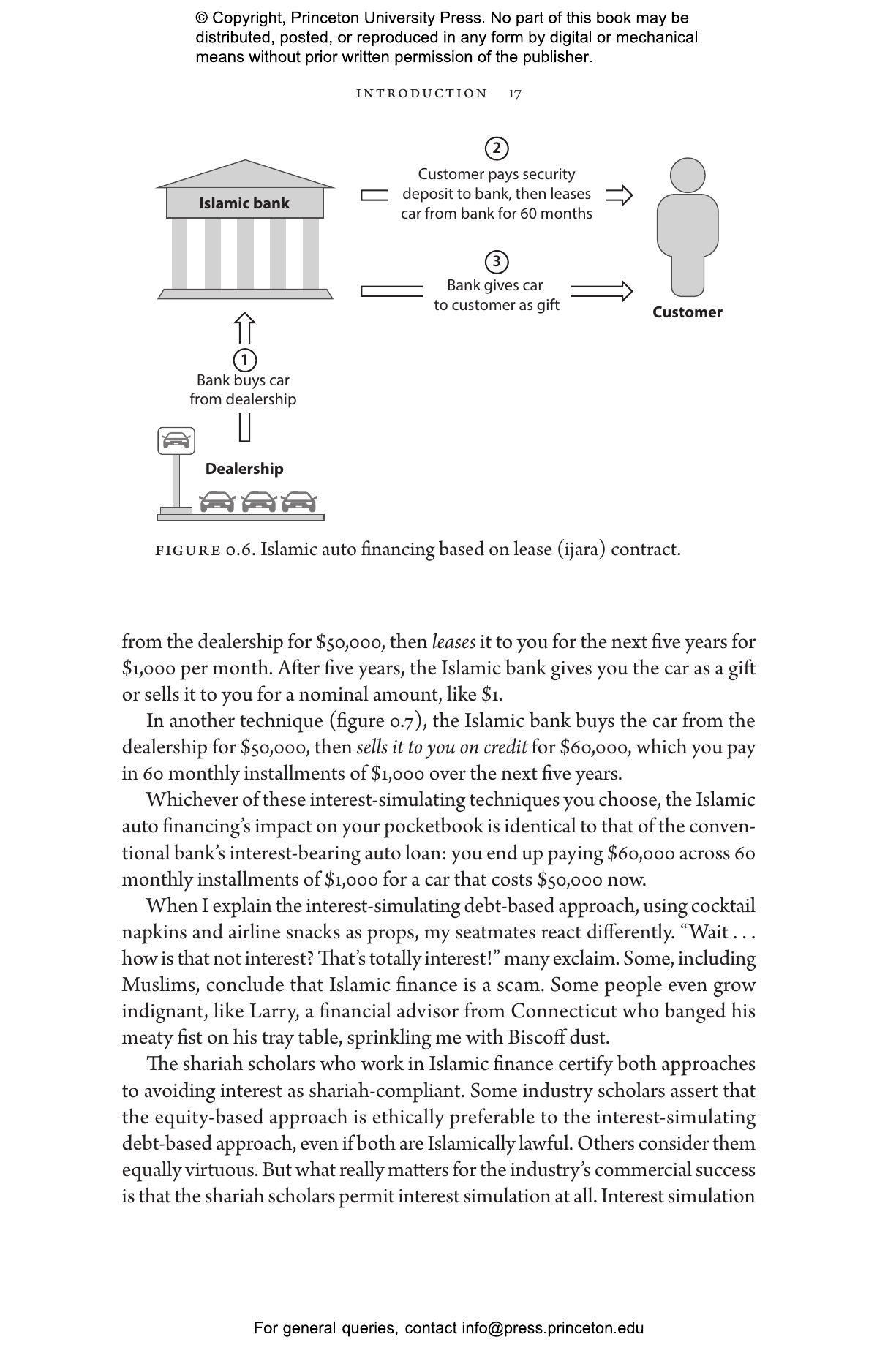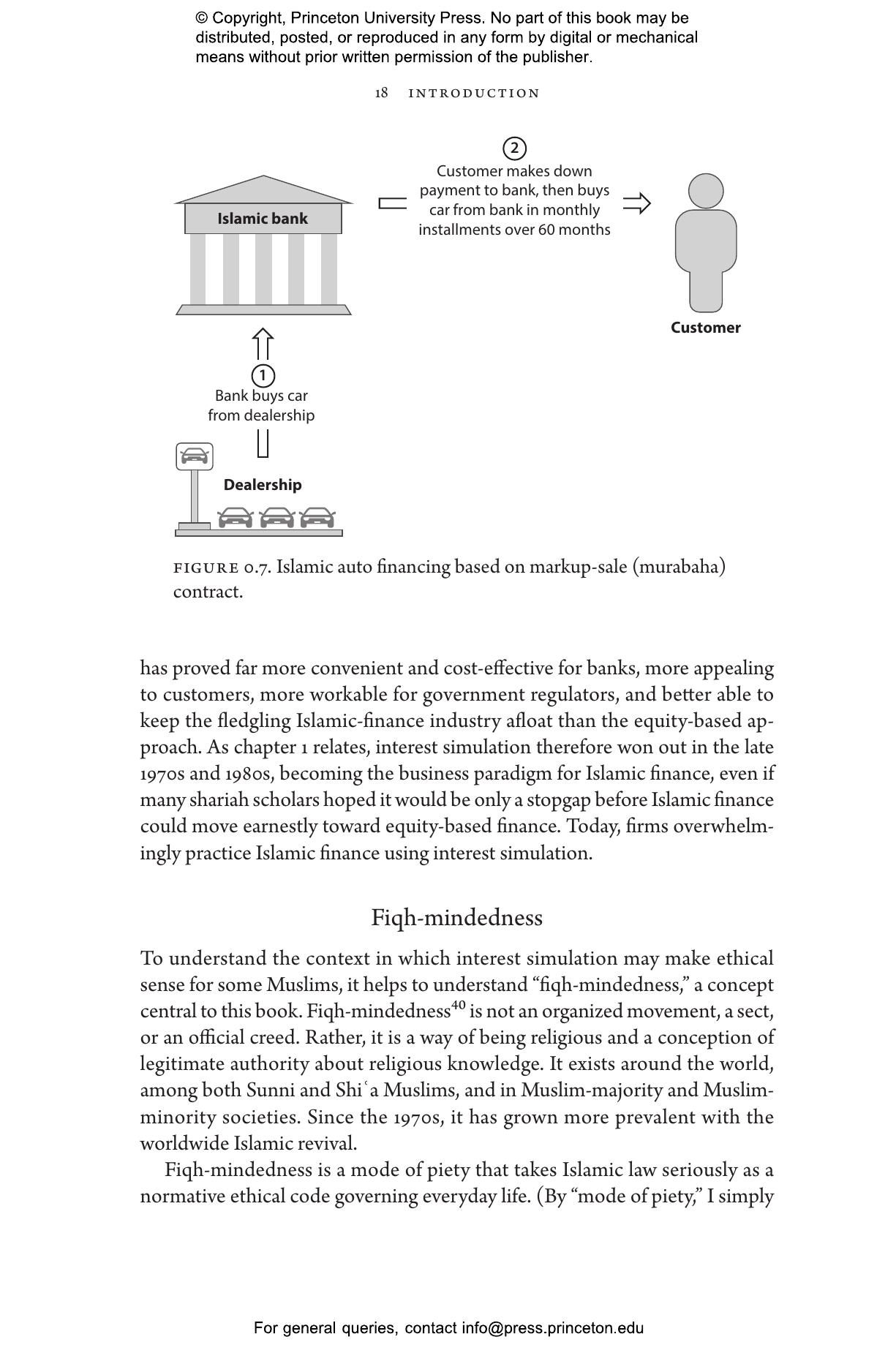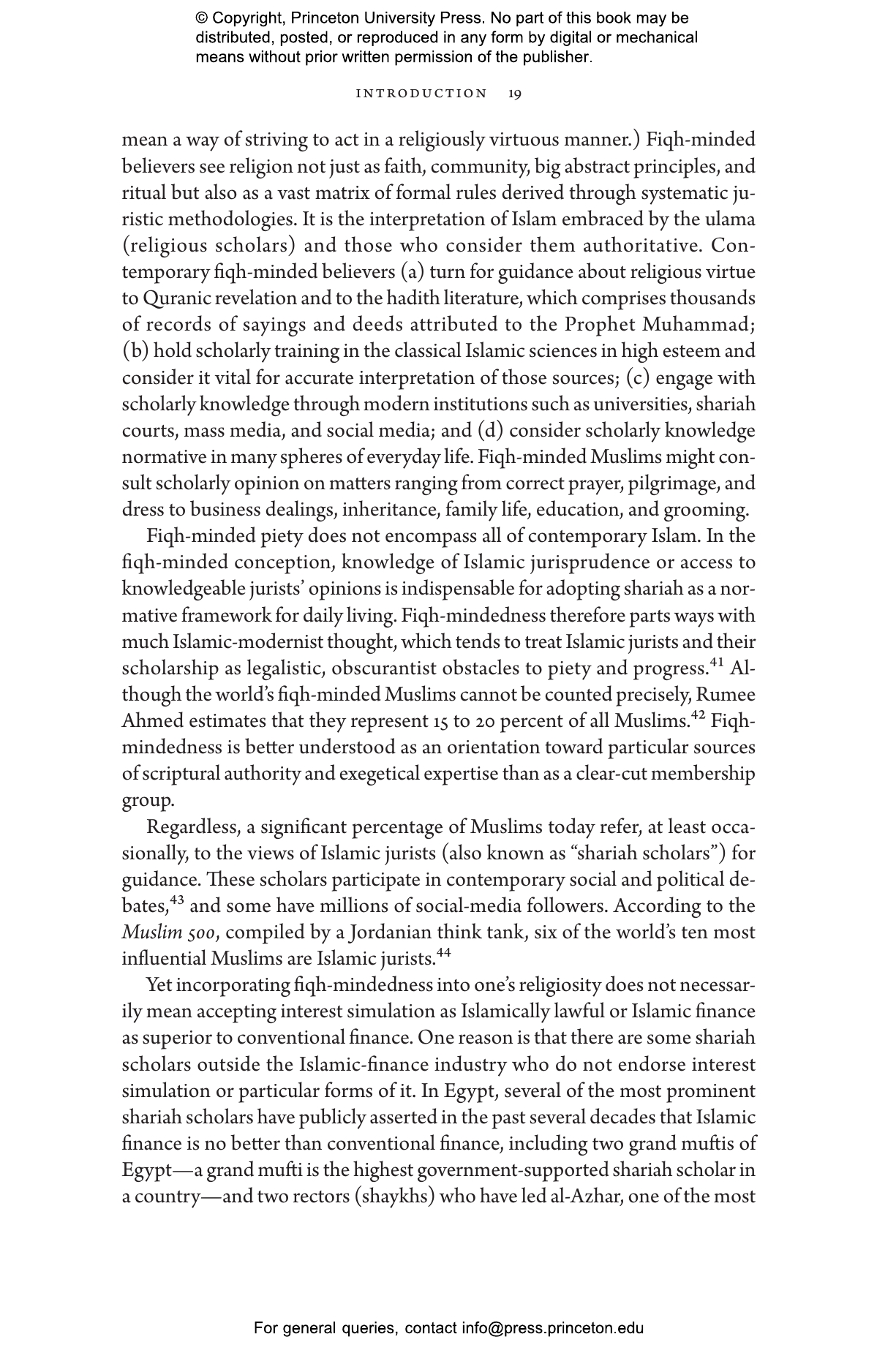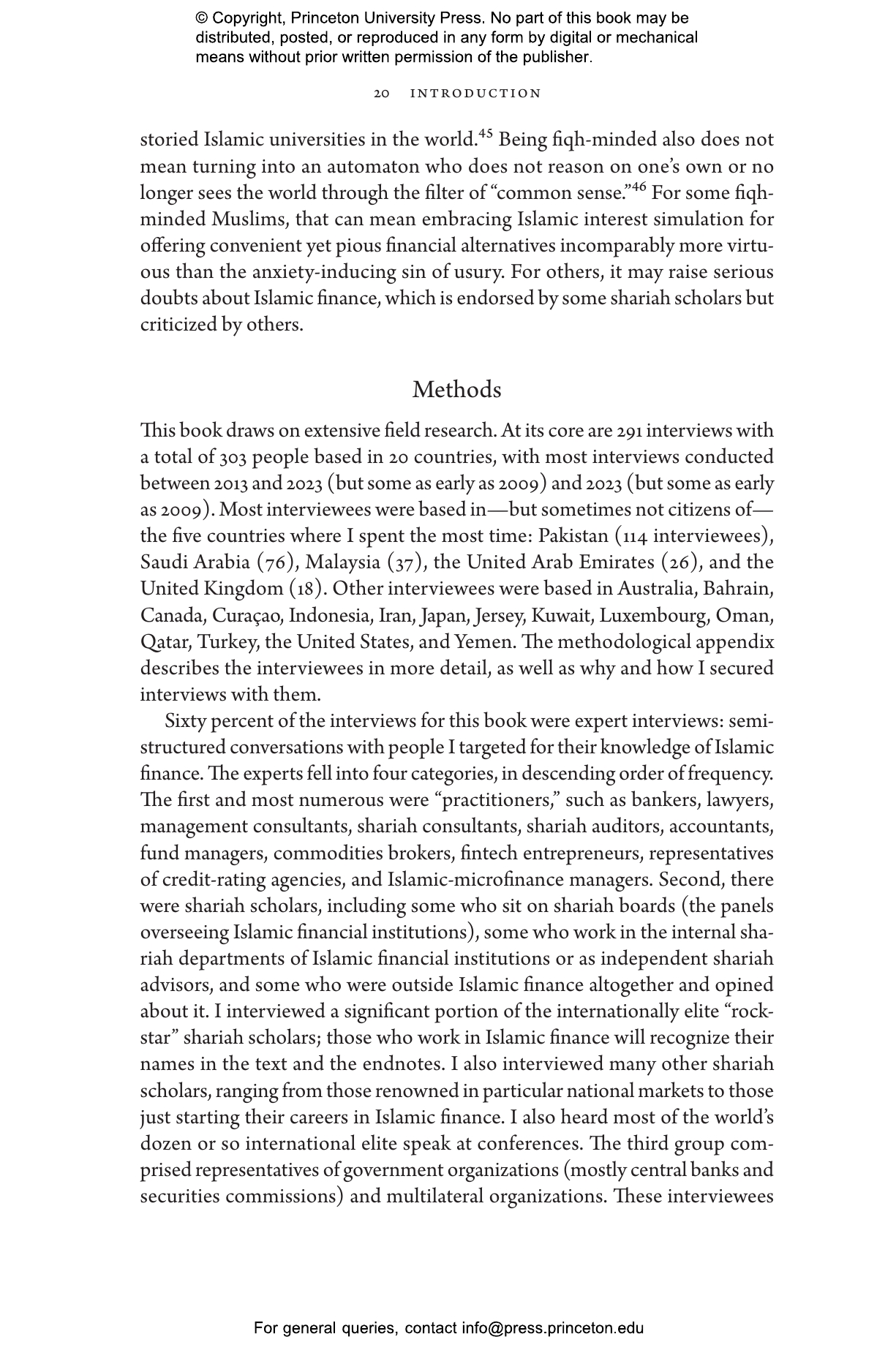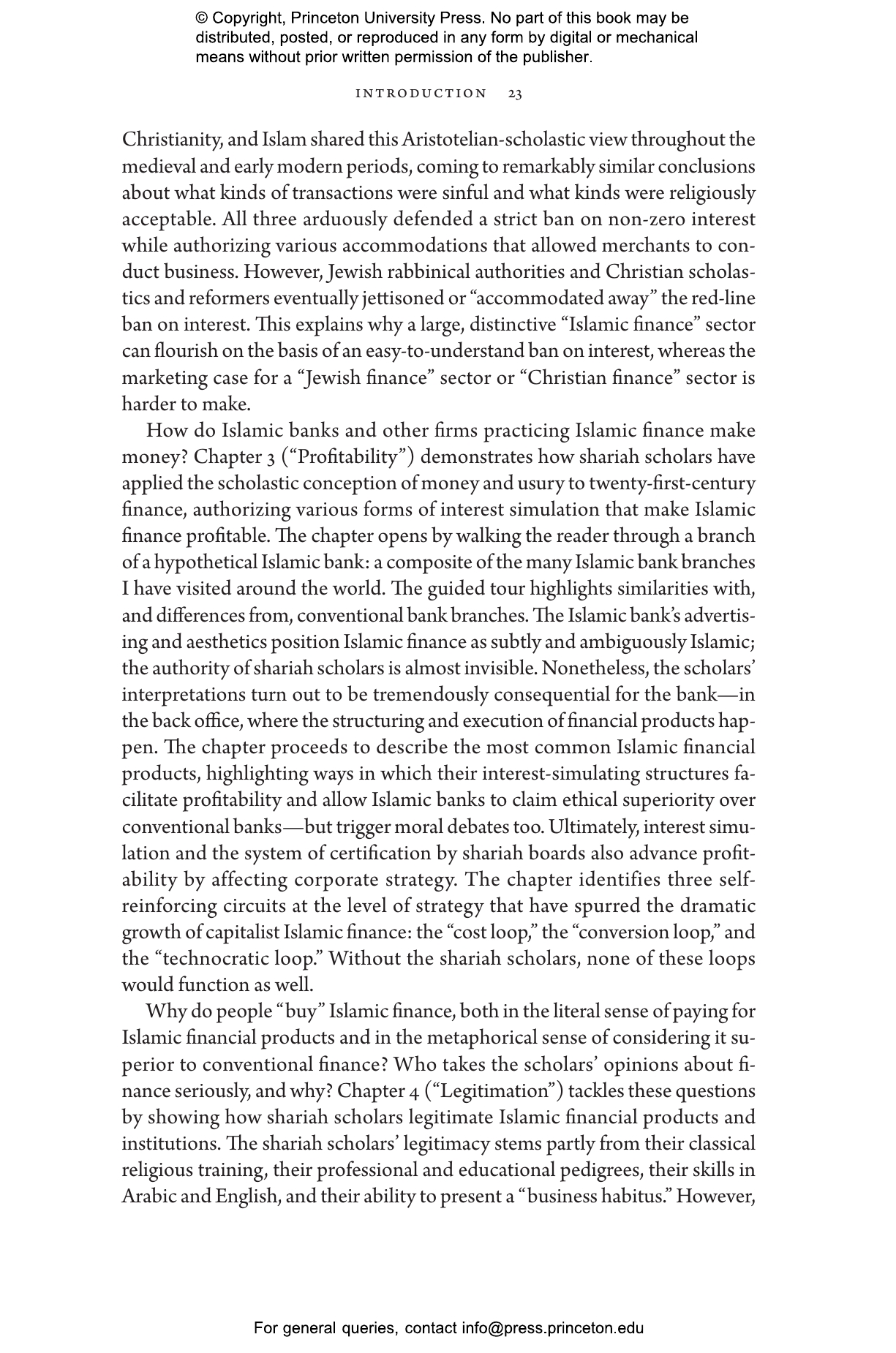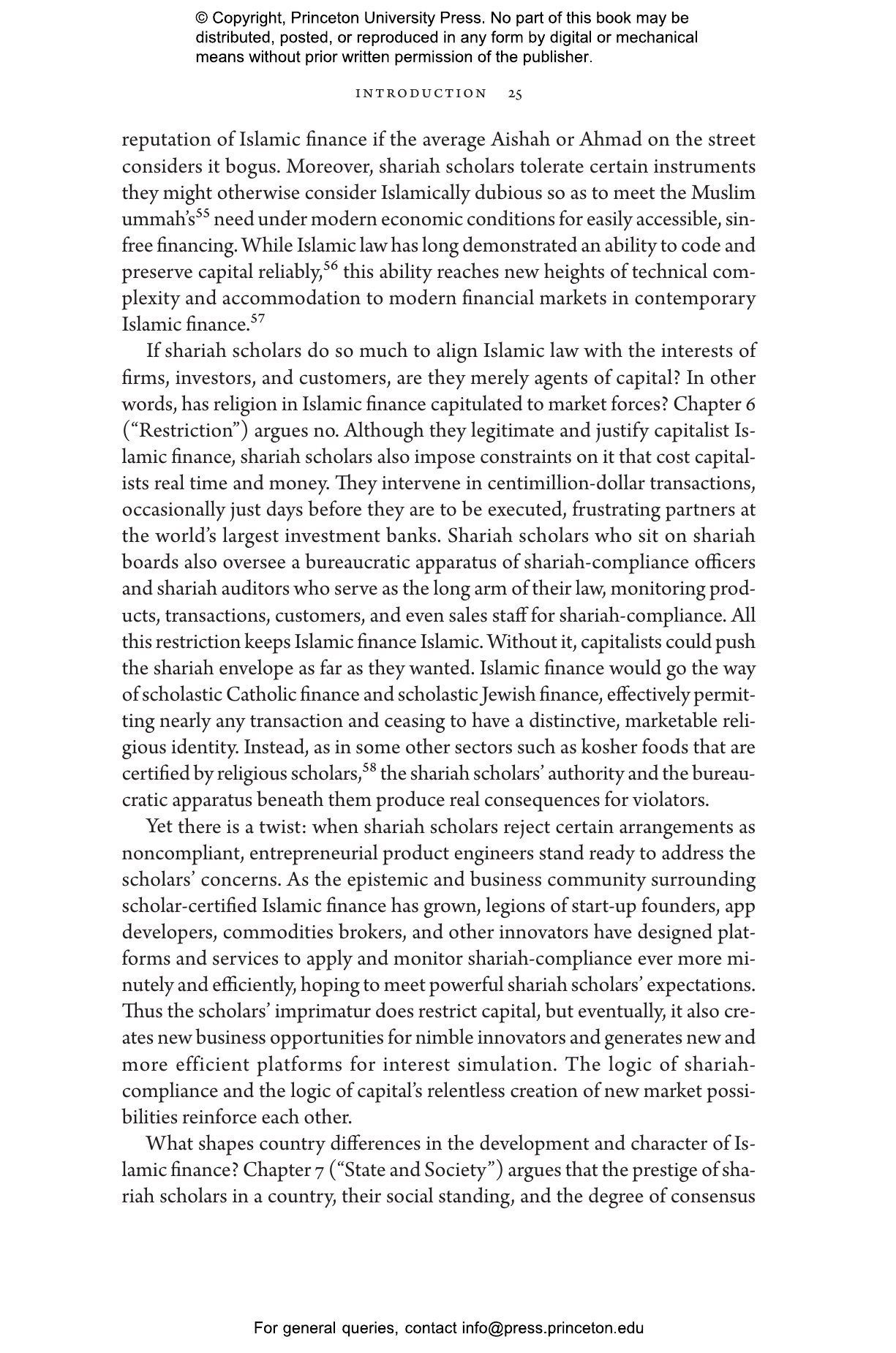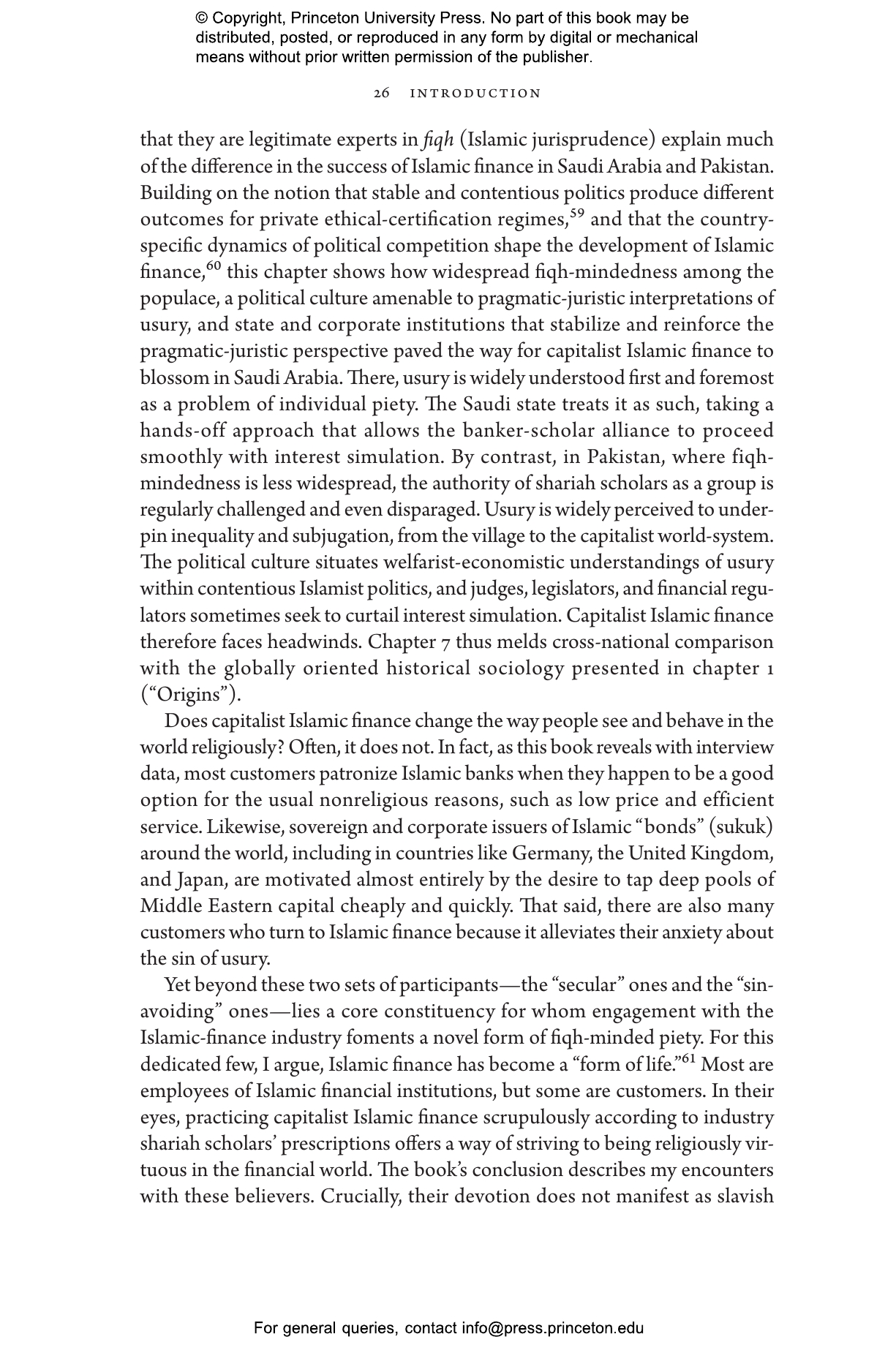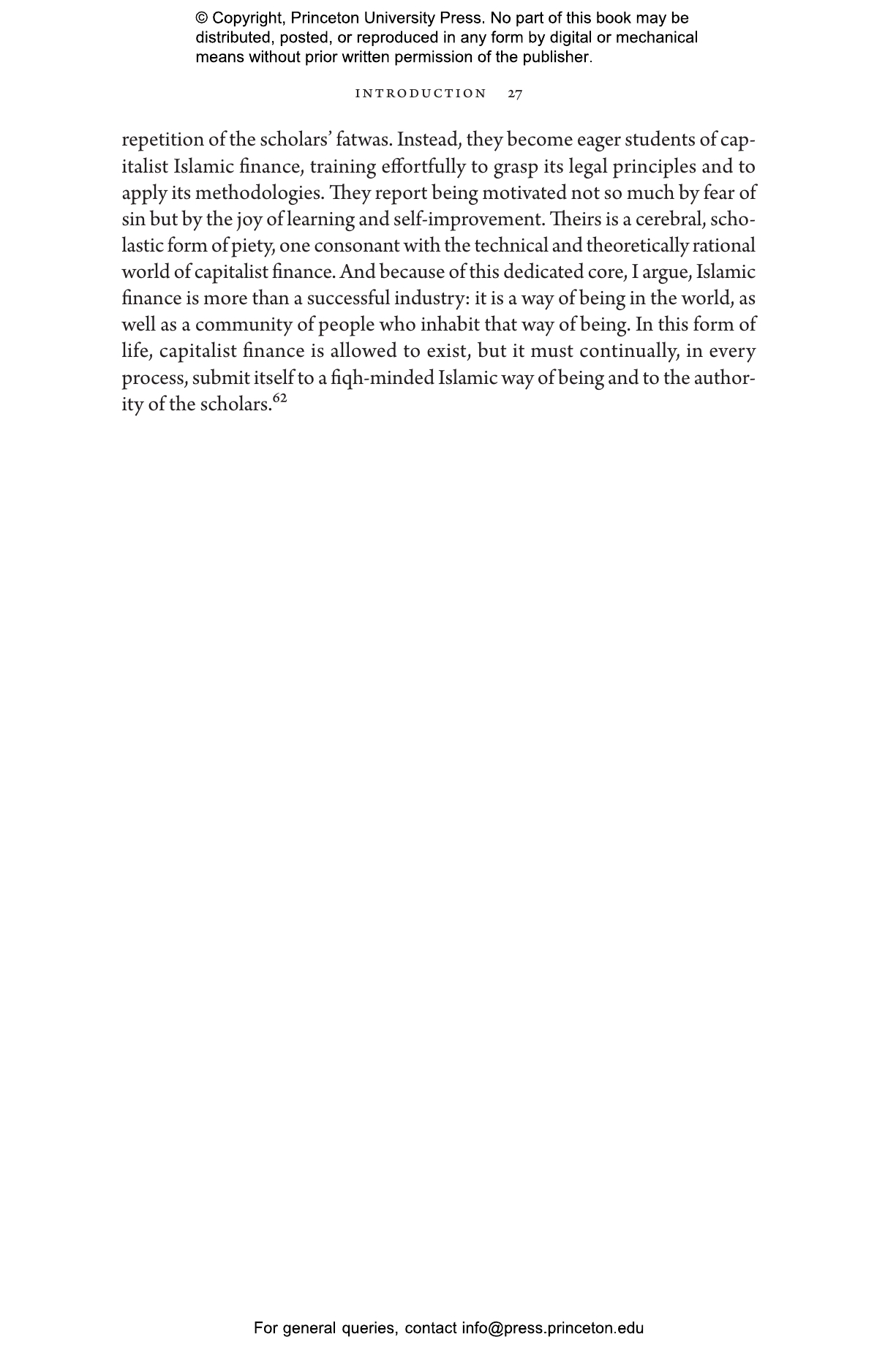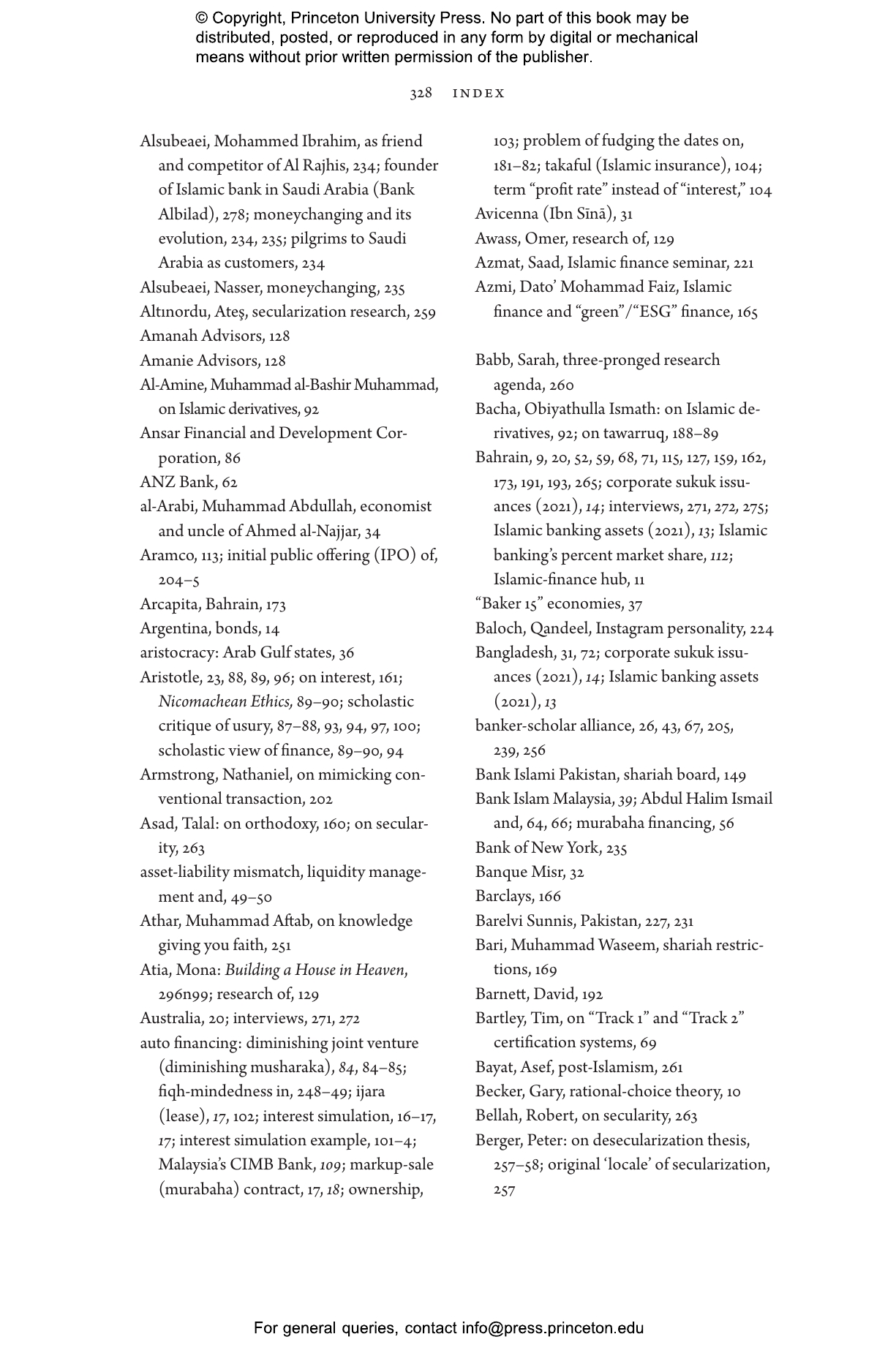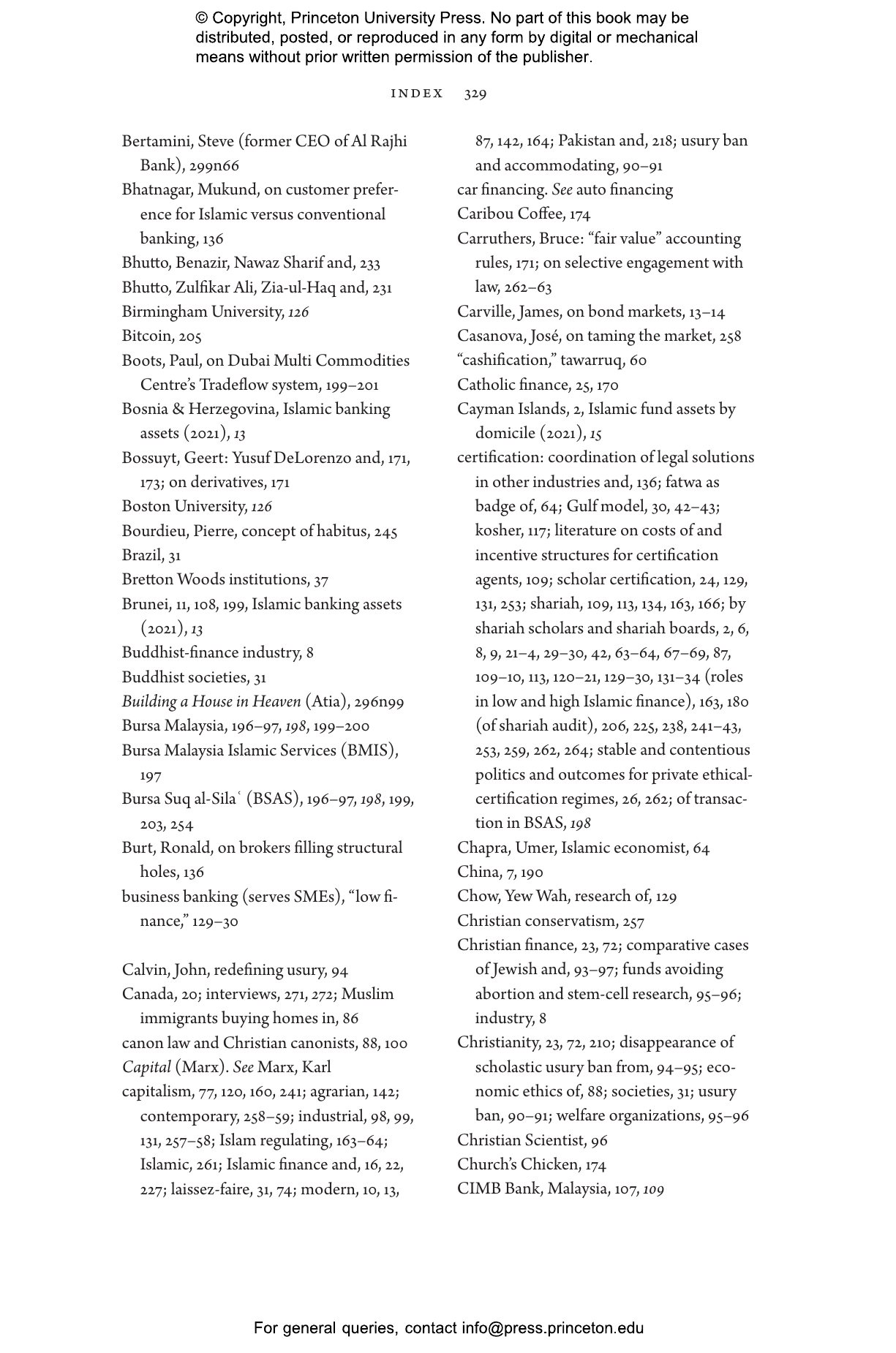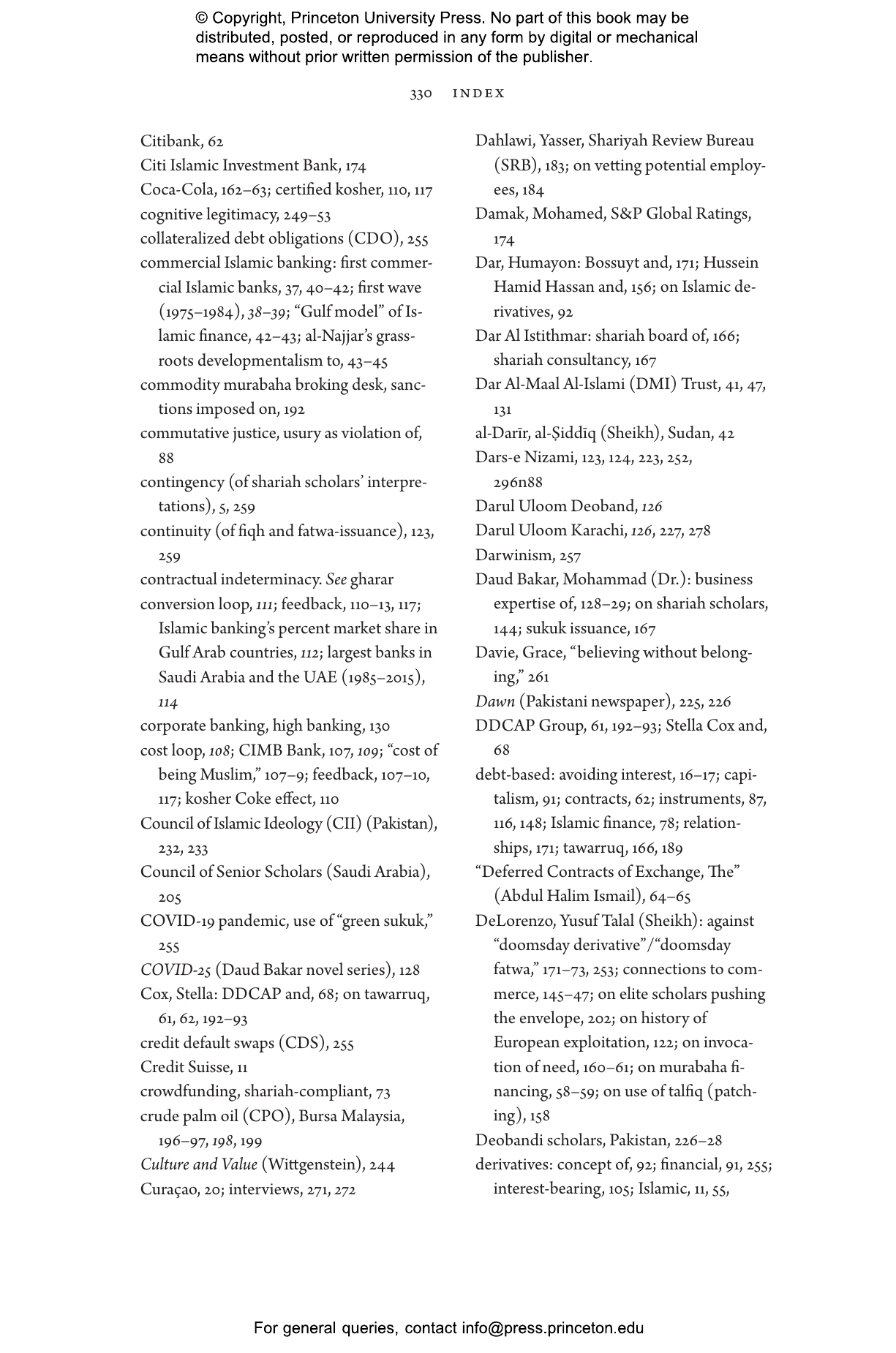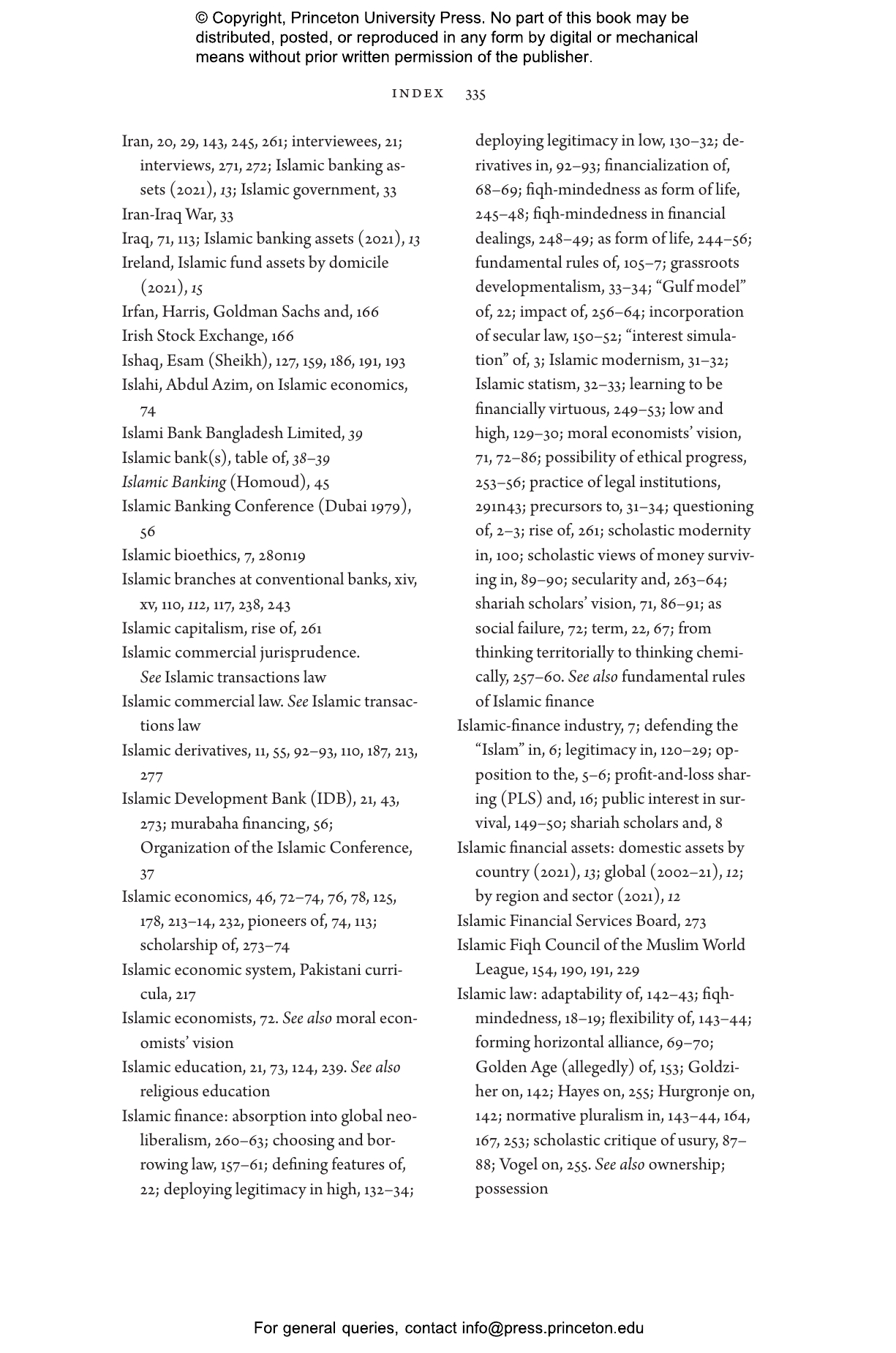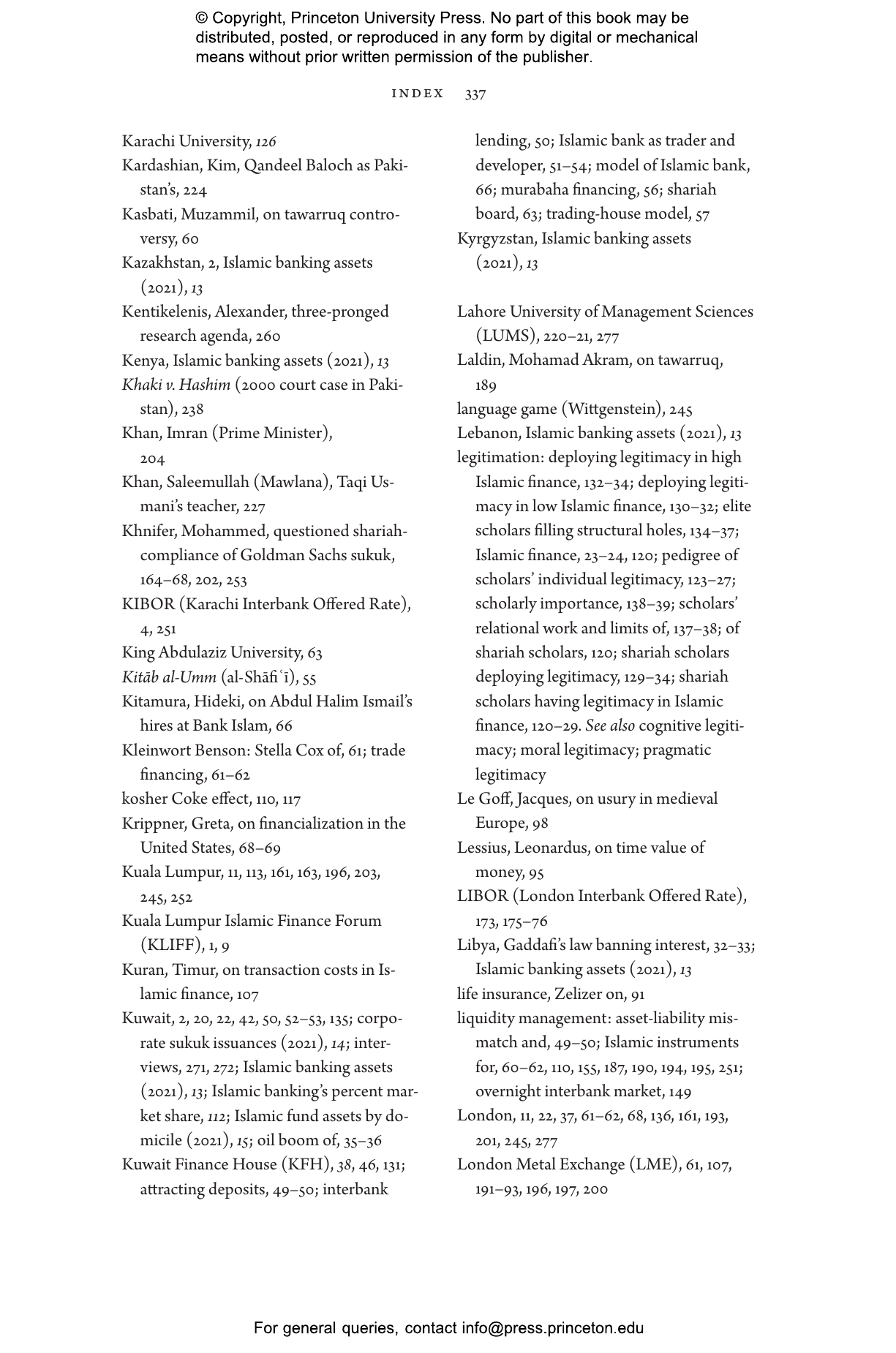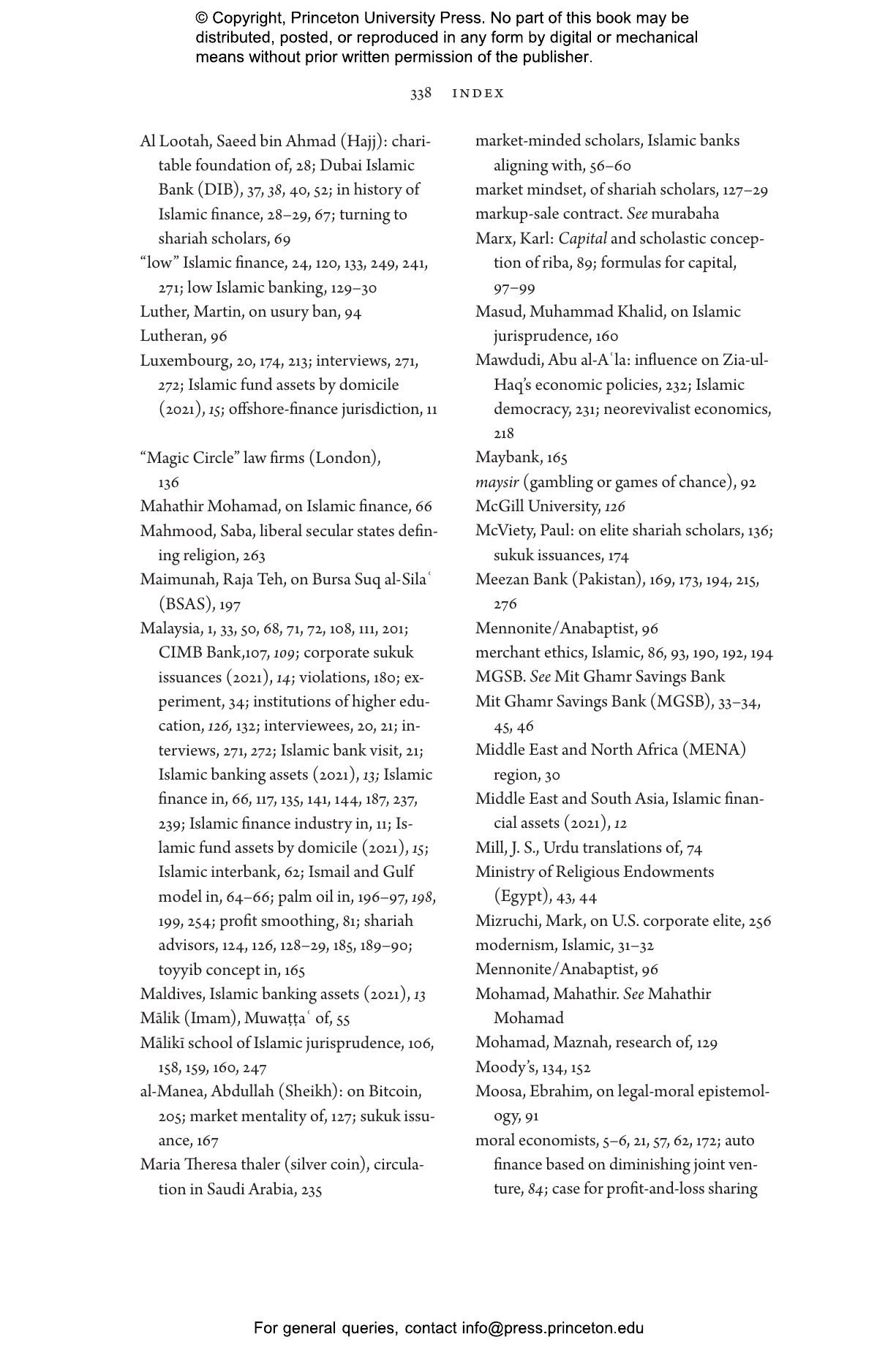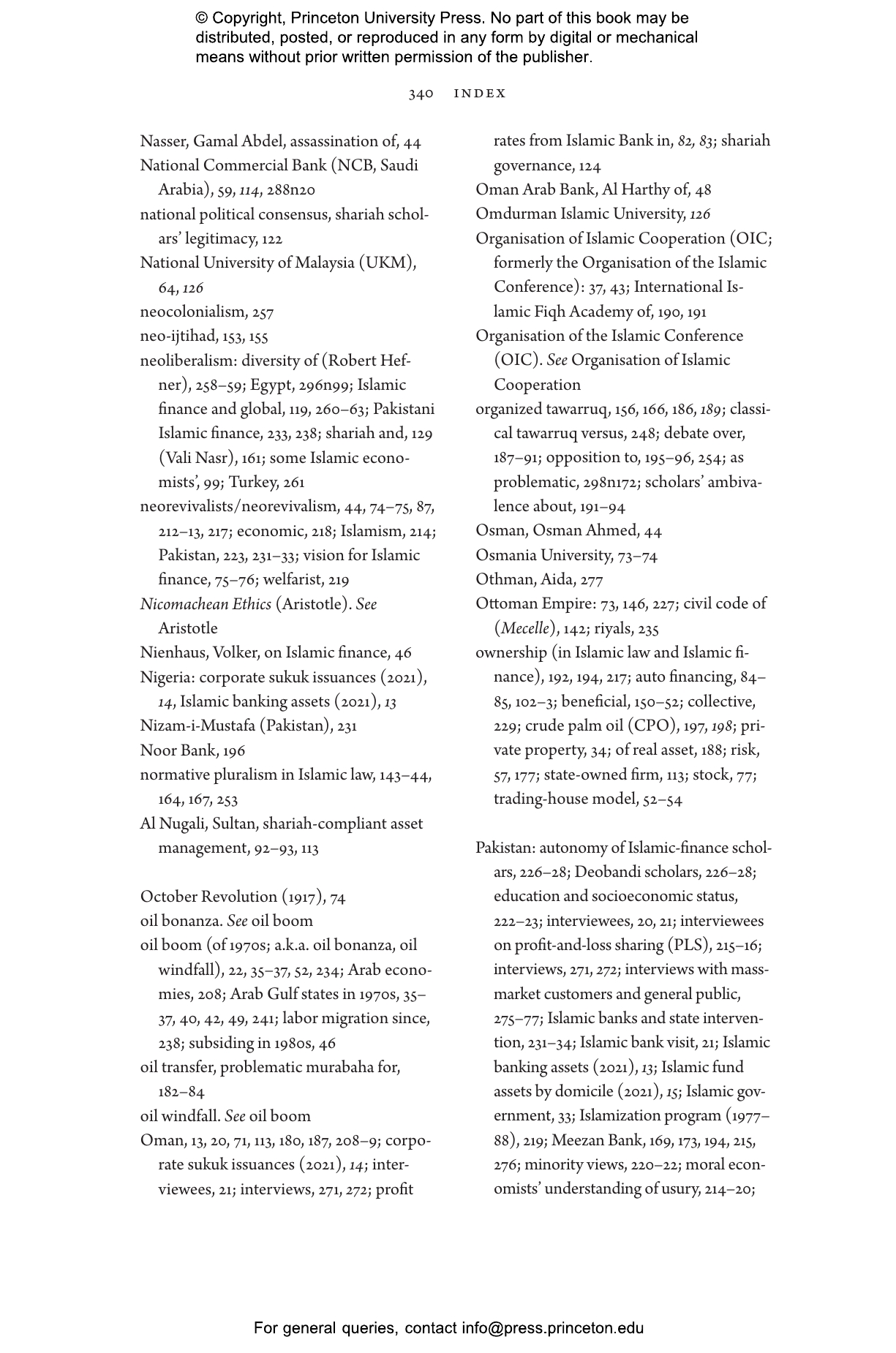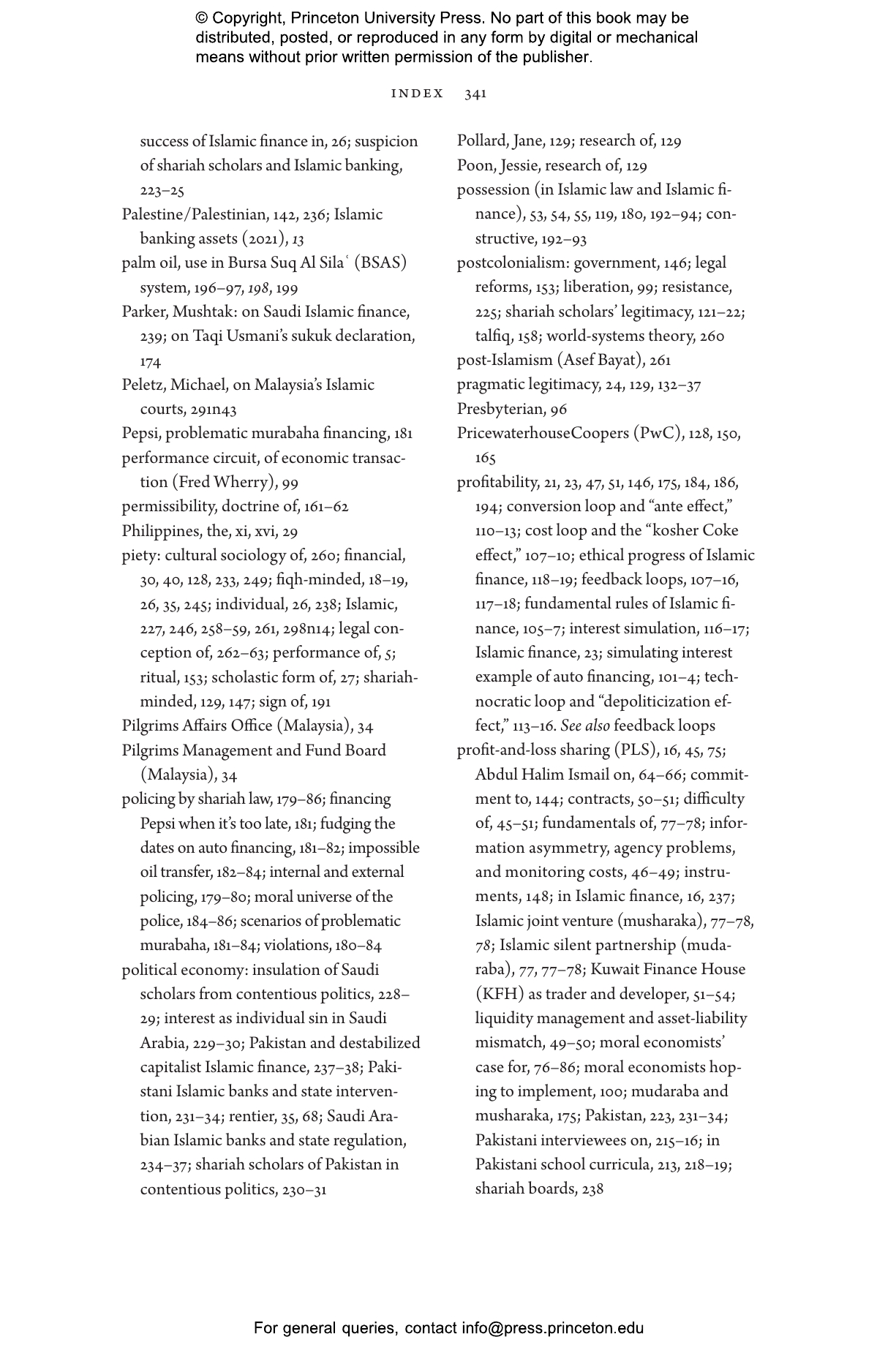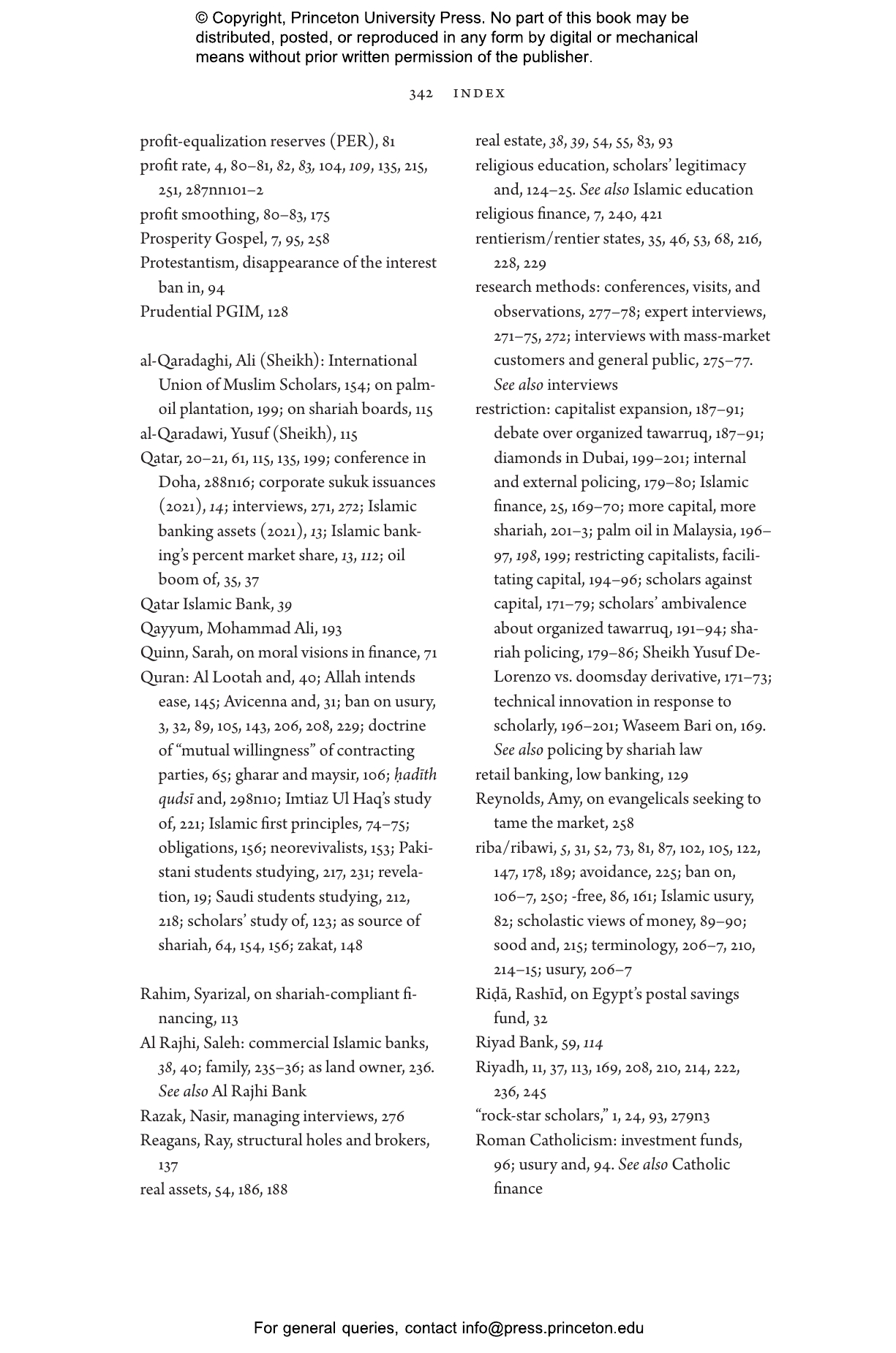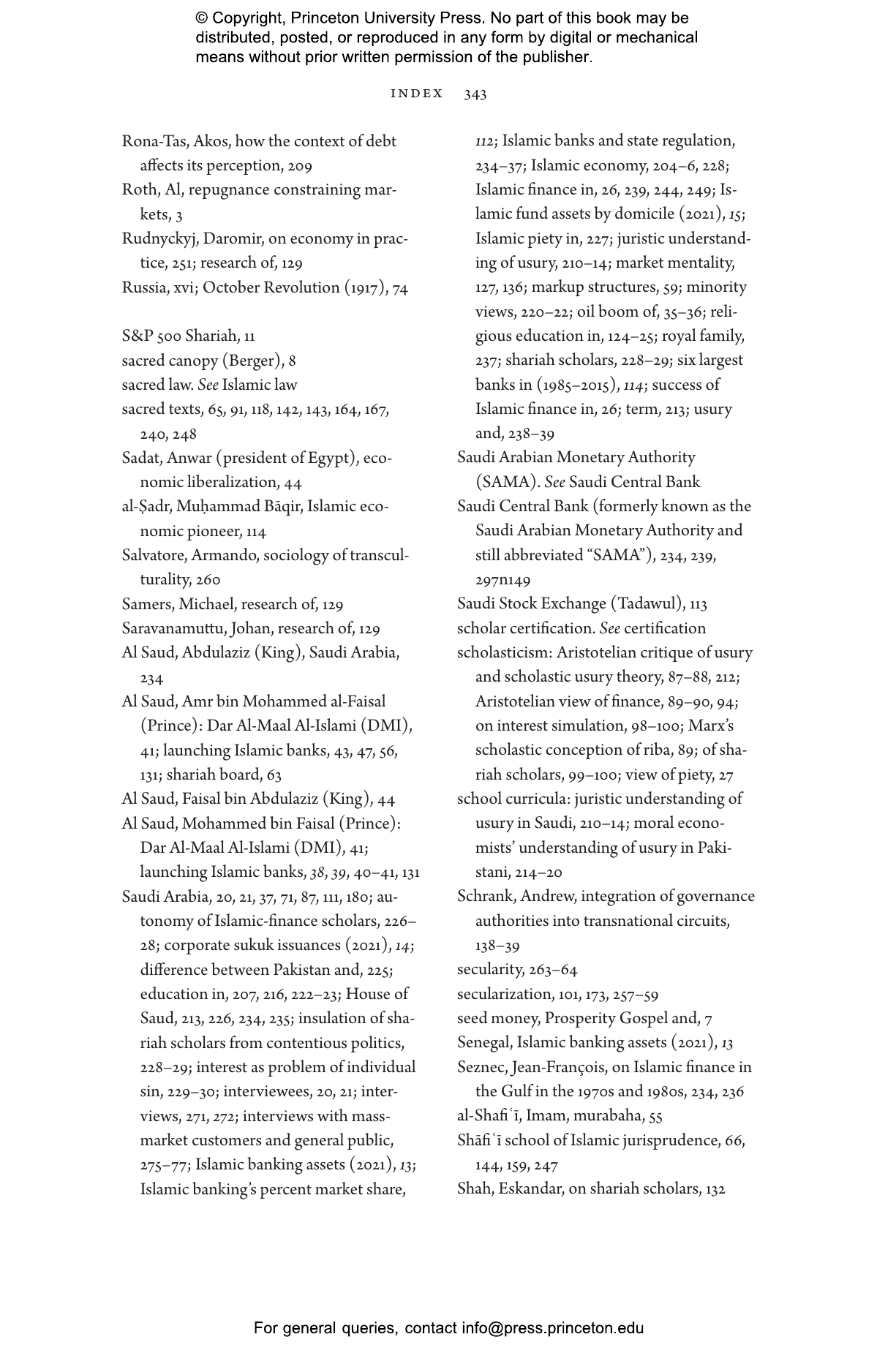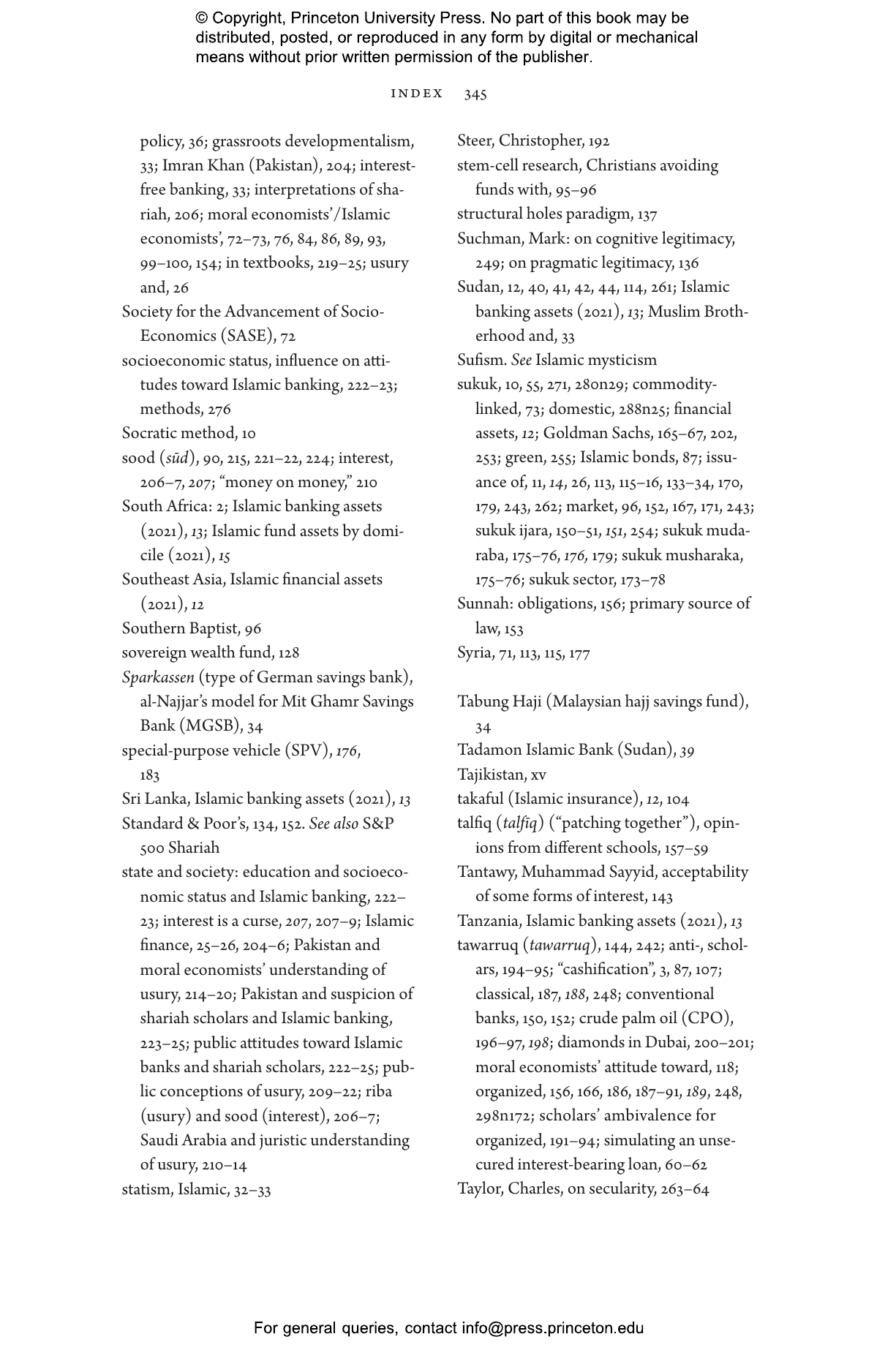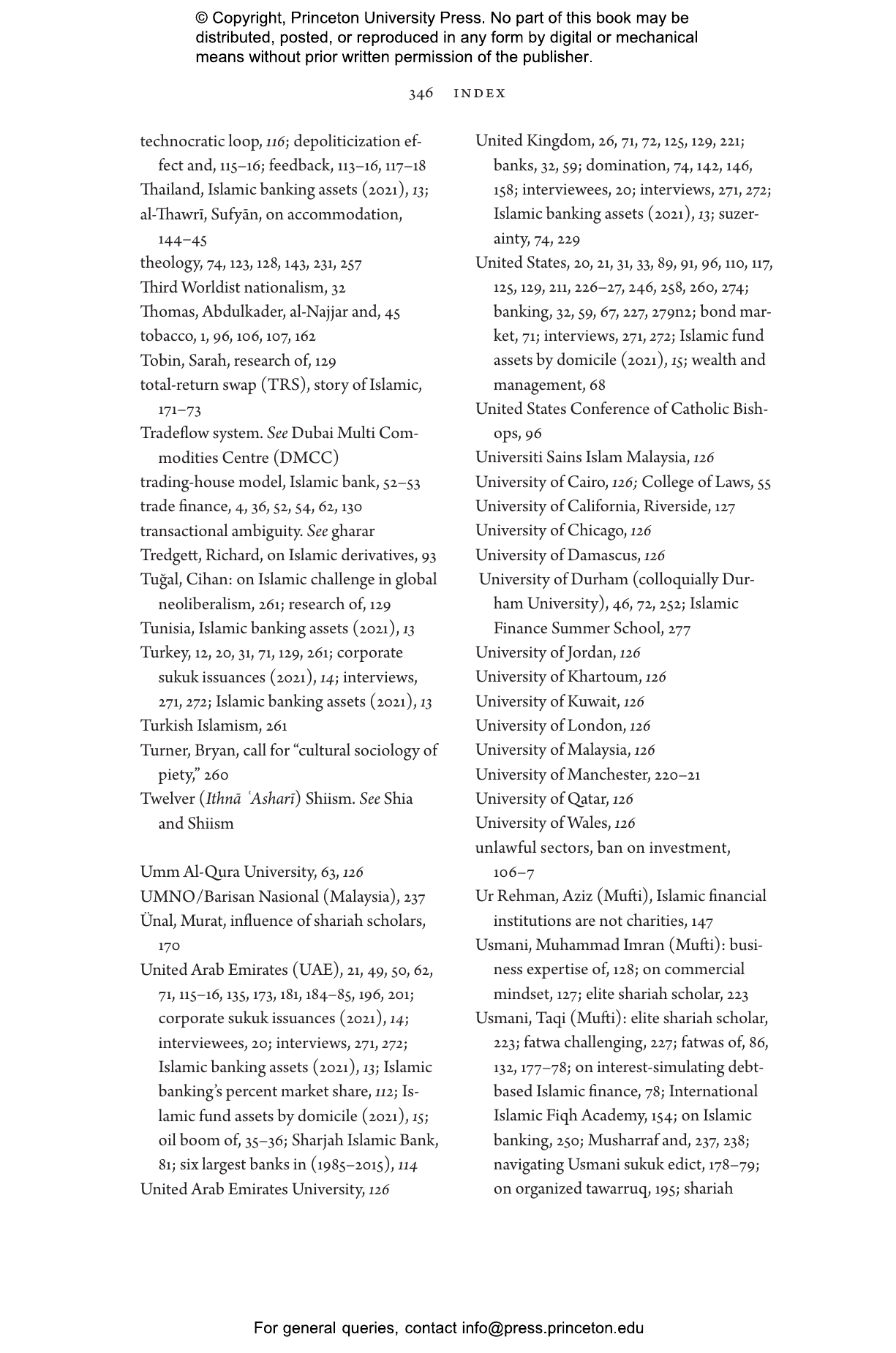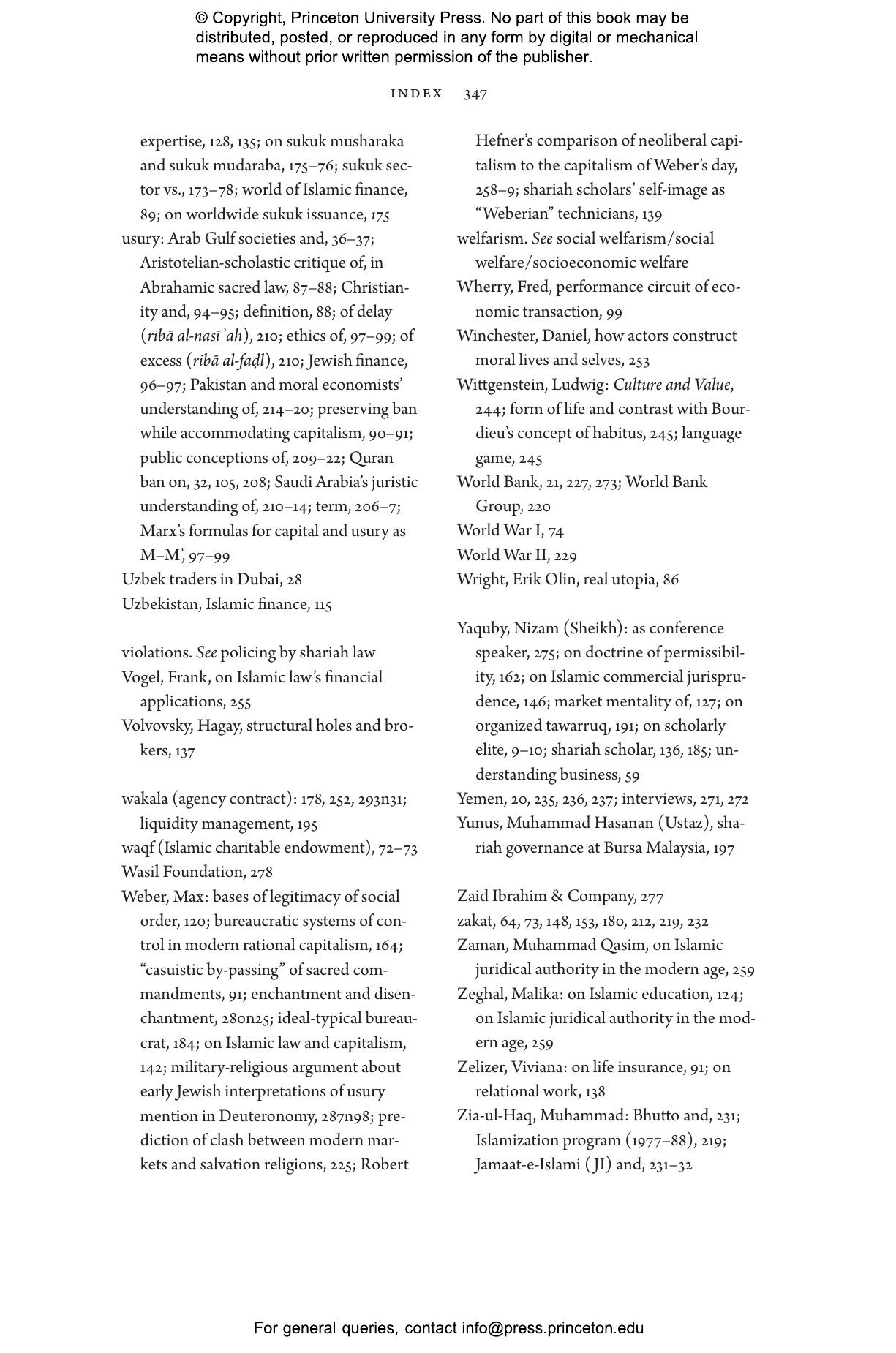In just fifty years, Islamic finance has grown from a tiny experiment operated from a Volkswagen van to a thriving global industry worth more than the entire financial sector of India, South America, or Eastern Europe. You can now shop with an Islamic credit card, invest in Islamic bonds, and buy Islamic derivatives. But how has this spectacular growth been possible, given Islam’s strictures against interest? In The Paradox of Islamic Finance, Ryan Calder examines the Islamic finance boom, arguing that shariah scholars—experts in Islamic law who certify financial products as truly Islamic—have made the industry a profitable, if controversial, hybrid of religion and markets.
Critics say Islamic finance merely reproduces conventional interest-based finance, with the shariah scholars’ blessing. From an economic perspective, they are right: the most popular Islamic products act like conventional interest-bearing ones, earning healthy profits for Islamic banks and global financial heavyweights like Deutsche Bank and Goldman Sachs. Yet as Calder shows by delving into the shariah scholars’ day-to-day work, what seem like high-tech work-arounds to outsiders carry deep and nuanced meaning to the scholars—and to the hundreds of millions of Muslims who respect their expertise. He argues that shariah scholars’ conception of Islamic finance is perfectly suited to the age of financialization and the global efflorescence of shariah-minded Islam.
Ryan Calder is assistant professor of sociology and director of the Program in Islamic Studies at Johns Hopkins University. Before entering academia, he worked in management consulting and then covered the Libyan Arab Spring uprising for The Atlantic and Foreign Policy.
"One of the key classical texts in economic sociology with an original contribution to our understanding of the relationship between religion and capitalism in the 21st century. . . . [The Paradox of Islamic Finance] is a must-read for anyone seeking to understand the dynamic relationship between religion, finance, and capitalism in contemporary times."—Fulya Apaydin, European Journal of SociologyÂ
"Ryan Calder has written a highly readable and sensitive ethnographic study of Islamic finance that merits a wide readership. . . . . Much Islamic finance literature effaces the decisions that individual Muslims undertake when they are compelled to decide between conventional and Islamic financial services. Nowhere else have the multiple subjectivities and discourses underpinning Islamic banking been accorded a better narrative than here."—Michael O’Sullivan, Bustan
“What makes Islamic finance Islamic? In this deeply researched book, Ryan Calder goes around the world to penetrate the professional and ethical universe of the guardians of this trillion-dollar industry: the shariah scholars, who guarantee the legitimacy of its operations, develop and certify its products, and in the process teach the faithful how to live a fiqh-minded life. A stunning analysis and a captivating read."—Marion Fourcade, author of Economists and Societies: Discipline and Profession in the United States, Britain, and France, 1890s to 1990s
“Finally we have a book that takes seriously the organizational and intellectual workings of Islamic finance without romanticization or rebuke. Calder's sociological account tells us why this sector of the global economy is here to stay amidst twenty-first century capitalism.”—Kevan Harris, University of California, Los Angeles
“An account of Islamic finance that pulls off the rare feat of being both sweeping and nuanced, offering an essential new analysis of a major global market. Anyone who wants to understand culture and morality in economic life should read this book.”—Sarah Quinn, University of Washington
This publication has been produced to meet accepted Accessibility standards and contains various accessibility features including concise image descriptions, a table of contents, a page list to navigate to pages corresponding to the print source version, and elements such as headings for structured navigation. Appearance of the text and page layout can be modified according to the capabilities of the reading system.
Accessibility Features
-
WCAG v2.2
-
WCAG level AA
-
Table of contents navigation
-
Single logical reading order
-
Short alternative textual descriptions
-
Print-equivalent page numbering
-
Landmark navigation
-
Index navigation
-
Epub Accessibility Specification 1.1
-
ARIA roles provided
-
All non-decorative content supports reading without sight
-
No known hazards or warnings
